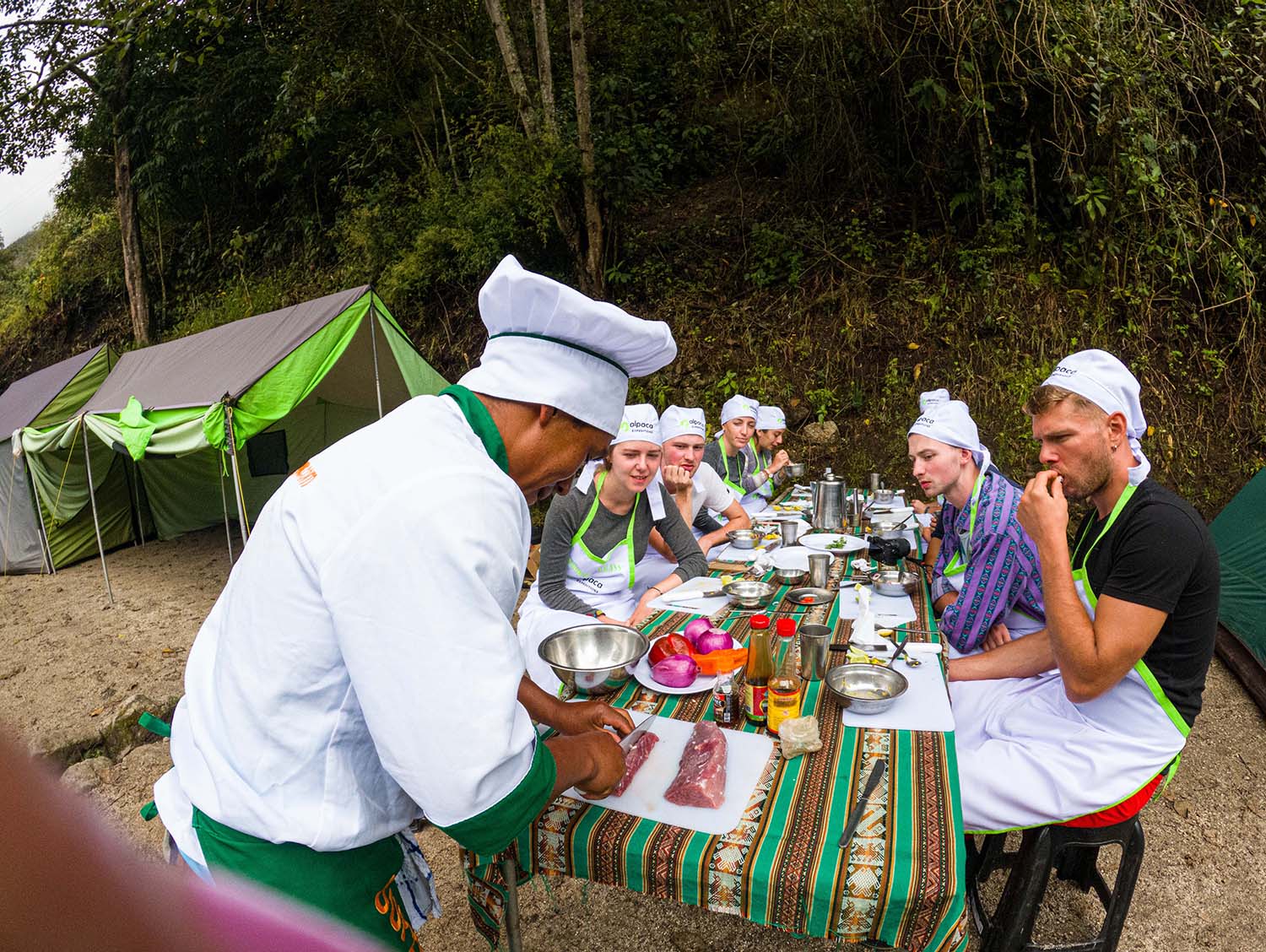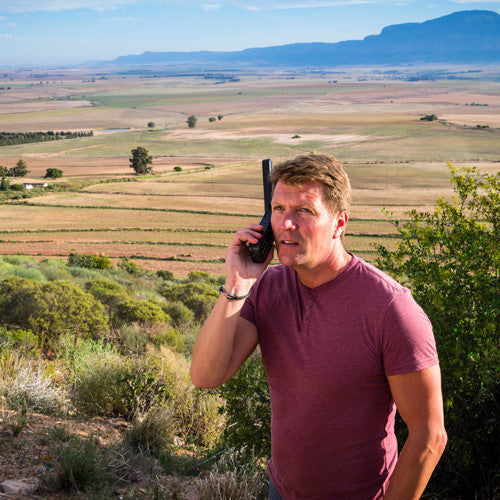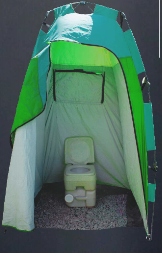Ausangate Trek with Rainbow Mountain
3 Days / 2 Nights
The Ausangate Trek is one of the most rewarding experiences guests can include in their trip to Peru. This 3-day adventure will guide you through towering mountain passes, and stunning lagoons, and eventually land you at the famous Rainbow Mountain.
This Ausangate Trek and Rainbow Mountain Tour is considered challenging with high altitudes and steep ascents, but our dedicated team of porters, guides, and chefs will ensure you have everything you need to thrive on the trail.
Trek Ausangate Location: Cusco, Peru to Rainbow Mountain
Trek Ausangate Tour Type: Hiking, adventure, camping
Good For: Those with a sense of adventure and in good shape
Trek Ausangate Temperature: Cold, the temperature may go below 0 degrees at night
Trek Ausangate Difficulty: Challenging
Trek Ausangate Considerations: Enjoy the amazing colors of the mountains before they are discovered by the public
Ausangate Trek with Rainbow Mountain 3 Days / 2 Nights
Ausangate Trek 3-Day Details
Itinerary
-
Day 1: Reach the Trailhead and Start Your Ausangate Trek
Cusco– Pukutuni School – Pucaccocha
Pick up for the Trek Ausangate will be at 4 AM, and it will be a three-hour drive to the trailhead at Pukutuni School. Here you will enjoy some breakfast and meet your crew: chef, porters, and horses men. It will be a three-hour hike until your lunch spot at Upis village, in the skirt of Ausanagte Mountain. After lunch, you will climb for another 1.5 hours uphill to the first pass called Vicuña Pass (4850 meters) and then approximately 3 hours to your evening campsite at Pucaccocha. All along the Trek Ausangate path, there are stunning views of the valleys, waterfalls, and glacier peaks.
Trailhead elevation: 4200m
Walking distance. 16km
Campsite elevation. 4600m
Weather: cold
Rate: Challenging -
Day 2: Hike With Ausangate Mountain Views and See First Glimpse of Rainbow Mountain
Pucaccocha – Condor pass – Alpaca pass – Sororni Lake
After an early, nutritious breakfast, you will continue the Trek Ausangate hike with a 2-hour climb to Condor pass (4900 meters). On the way, you will have magical views of Ausangate mountain and lagoons, and perhaps you will see some llamas and alpacas. It is then a gradual downhill hike for 2 hours to our lunch spot. After lunch, you will have a small climb to Alpaca pass (4950 m) where you can see a small part of Rainbow Mountain, one of the magical moments in the Ausangate tour. After one more hour of downhill hiking, you will get to this evening’s campsite. Here you will experience one of the most beautiful spots to take in the Andean sky.
Walking distance: 08 km
Campsite elevation: 4700m
Weather: cold
Rate: Challenging -
Day 3: Be First To Arrive at Rainbow Mountain With Ample Time To Enjoy The Views
Soroni Lake – Rainbow Mountain – Kayrawiri
Spending the night in the mountains means you will be one of the first to arrive at the colorful Trek Ausangate Rainbow Mountain. You will again enjoy a nice breakfast with hot drinks to start your morning. You will hike 2 hours, gradually uphill to get to this famous mountain. On the way, you can see some wild vicuñas. Upon your arrival, the views will be stunning, and because it will be so early, you should be able to take spectacular photographs of all the colors. Your guide will explain to you about the colors and minerals. Once you are ready to leave, it will be 1 hour to the end of the trail, where you will say goodbye to your trekking team and continue from this point with just your guide. It will then be a 3 hours drive to Cusco.
Walking: 6 km
Weather: Cold
Rainbow mountain elevation: 5030m
Rate: Challenging
Inclusions
-
Included
- Trek Ausangate Professional Guides: All of our guides studied English and tourism at Cusco National University. They all grew up in the Cusco region, and are committed to teaching others about their heritage. They are fun yet professional and will ensure you are safe and happy.
- Trek Ausangate Briefing: The night before your Lares Trek to Machu Picchu, you will come to our office at 6:30 PM for your briefing with your trekking guide. You will receive your duffel bag for your items, which must include your sleeping bag and air matt. (ours weigh 2.5 kg and 1 kg respectively). All duffel bags will be carried by your porters, and will only be available at your campsite each day (morning and evening). Any items that are needed while hiking should be packed in your daypack.
- Trek Ausangate Porters & Horsemen: We include a personal porter, who is responsible for carrying your duffel bag containing your items. There is no additional fee for this. Your duffel bag will be provided at your briefing the night before, and to be filled with the things you will need for the next night and day. You will not have access to your duffel bag until you arrive at your evening campsite.
- Emergency Horse: All of our alternative treks include an extra horse for our clients to use if they need a break from trekking.
- Trek Ausangate Transportation: All your transportation is included in this trek. You will be picked up directly from your hotel around 4:30 a.m. and brought to the trailhead to begin your trek. Once you complete the trek, you will be brought back directly to your hotel in Cusco for drop off.
- Equipment: Alpaca Expeditions has the best equipment. We use Eureka Timberline 4 person tents that are shared by only two people. You will have a spacious dining tent to enjoy your meals in.
- Food: The Alpaca Expeditions chefs cook delicious meals that many previous trekkers have loved. We honor all food restrictions, so be sure to add any that you have on your booking form and let your guide know at your briefing. Food is typically all served family-style.
You will enjoy breakfast, lunch, and dinner each day for the trek along with a happy hour of tea and snacks. A snack will be provided each morning for you to enjoy along the hike. Your last meal with your chef will be after breakfast on day four. Lunch the last day is not included. - Water: Beginning from your first lunch until your last breakfast, Alpaca Expeditions will supply all the water needed. This water is boiled, filtered, and then cooled before distributing. You must bring personal water bottles and or a camelback. We recommend carrying about 3L worth. You will be able to refill your water at each meal.
- First Aid: Every Alpaca Expeditions guide has received training in first aid from a physician. We conduct mandatory training sessions every February, which every single Alpaca tour guide must attend. Your tour guide will always have a first-aid kit for basic medical situations (traveler´s diarrhea, cuts, scrapes, etc.) and oxygen. We will get you off the trail as quickly and comfortably as possible if needed, and ensure you get directly to a clinic for treatment.
- Extras: We believe it´s the attention to small details that separates us from other tour companies. Every trekker receives a small pillow to sleep with, a foam mattress for insulation, a day pack cover to protect their things while hiking, and a rain poncho. We will work hard to create your best vacation.
- Satellite Phones: Our top priority will always be the safety of our clients and our team. While all our guides are prepared and trained to deal with most issues clients have on the mountain. Being a phone call away from any doctor, hospital, or friend helps everyone feel assured that they are safe. Radios, which all our guides have, are limited in how far they can reach, so Alpaca Expeditions has added Satellite Phones to every trek. Every guide will have a fully charged phone that can be used anywhere on the mountain to connect us anywhere in the world. And they can be used by our clients for non-emergencies as well. While they are not cheap to use, they are available just in case you need to check in on the puppy you left at home with grandma.
-
Not Included
- Rentals: Every trekker needs a sleeping bag when camping. Inflatable air mattresses and walking sticks (with rubber tips) are optional but encouraged. If you don’t want to bring any of the above, they are all available for rent:
Sleeping Bag: $20
Inflatable Air Mattress: $15
Walking Sticks (Pair): $15
Price
-
Student Discount:
$25 off per person
Student discounts apply to anyone who has a valid UNIVERSITY STUDENT CARD at the time of the trek or who is 17-years-old or younger. For those using an university student card to receive the discount, we need to see a copy of the card at booking. For those booking children 17-years-old or younger, we need a copy of their passport at booking time. Please send all to info@alpacaexpeditions.com.
More Information about STUDENT CARD
-
Rentals:
Sleeping Bag (four season): $20 (Maximum size 1.95m / 6’4″)
Pair of walking poles (Black Diamond): $15
Inflatable air mattress (Thermarest): $15
* Foam mats and small pillows are provided for everyone.
Travel Info
-
Getting to Cusco
The airport in Cusco currently is only for domestic flights, so all international travelers by plane must disembark in Lima and go through Customs. Even if your flight to Cusco is the same day by the same airline carrier, you must grab your bags in Lima and then check them back in.
The best way to get to Cusco is by air, and there are several options in airlines. LAN tends to be the most expensive but has the most options and flights. Expect delays or flight cancellations. Due to the high altitude of Cusco, it tends to be difficult to land, and any acclimate weather will stop air traffic. Bus travel is always available, and while the trip can be long, especially from Lima, the buses in Peru are very well maintained and comfortable. This option is strongly encouraged if coming from a city closer to Cusco, like Puno. Lima buses will take about 20 hours to arrive.
-
Luggage Storage
Any extra luggage you have with you can be left safely in Cusco at either your hotel or with us at the Alpaca Expeditions while you trek. We will store your luggage on the morning of your trek and return it once you are back in Cusco. Make sure your bags have tags on them, so they are easy to locate.
-
Altitude
As soon as people book their trip to Peru, specifically Cusco, they start wondering about altitude sickness. The air at high altitudes contains less oxygen than at sea level and forces your body to work harder to get the oxygen it needs. Over several days at high altitude, your body adjusts to the lower amount of oxygen in the air. For this reason, we always recommend spending at least two days in Cusco before beginning any trek in the Andes. Cusco is a marvelous city with lots to do, so if you have more time to acclimate, you won´t be bored.
With altitude sickness, you may first feel like you have the flu or a hangover. You may have a headache, tiredness, loss of appetite, nausea or vomiting, dizziness, trouble sleeping, trouble breathing during exercise. If any of these effects become severe, please contact our office, and we will help you get to a doctor.
Most of the time, these symptoms will be mild. We always recommend easing into activity slowly, allowing your body to adjust. Drink plenty of fluids such as water or coca tea. Coca tea has been used since ancient times to help prevent altitude sickness. Leaves from the Coca Plant contain alkaloids that help bring oxygen into your blood, helping your body avoid the effects of altitude sickness. Avoid drinking a lot of alcohol and coffee, since they will cause you to urinate more often and become dehydrated. Avoid smoking. Smoking makes it more difficult for your body to get oxygen. Avoid sleeping pills. They may cause shallow breathing at night, making it more difficult for your body to absorb oxygen while you sleep.Remember, the trek to Machu Picchu is not a race. Even those in the best shape will suffer from altitude sickness if they race to the top of the mountain too quickly. Go slow, and it will give your body time to adjust to the elevation. Your healthcare provider may prescribe medication such as Acetazolamide and Dexamethasone to help prevent altitude sickness. Start the medicine two days before you get to high altitude, and continue to take it while you are at high altitude. You must remember that this is your holiday and you do not want to stress out about the possibility of getting sick from the mountains. Do everything slowly and drink lots of water, and enjoy the coca tea. If anything does happen and you, unfortunately, get sick, let your guide know right away. Alpaca Expedition guides are trained to help you get through it.
-
Weather
Of course, the weather is unpredictable. Typically the dry season in Cusco is from April through October, but this does not stop rain from falling in June or the sun from coming out in December, so just be prepared. No matter what month you are doing the trek, make sure that you have rain gear that includes a waterproof jacket, pants, poncho, and waterproof gloves. Many people forget about gloves, but being cold and wet makes hiking very unpleasant.
Also, be ready for four seasons. Treks in the Andes involve various microclimates, and you will need to be prepared for each one. Layers are always key since they are easy to adjust to different temperature changes. Be prepared with a warm packable down jacket since the evening will be cold.
-
First Aid
Every Alpaca Expeditions guide has received training in first aid from a physician. We conduct mandatory training every February, and every single Alpaca guide attends. When guiding you, they will have with them a first aid kit for basic medical situations (traveler’s diarrhea, cuts, scrapes, etc.) and oxygen. They will take good care of you.
In case something unexpected happens, and you feel you can no longer complete the trek, they will figure out the safest and quickest way off the trail and to a clinic. You will never be left alone; you will have a member of the team escort you every step of the way until safely with a doctor. When you are feeling up to it, we will make sure that you still have the chance to visit Machu Picchu and re-connect with your group. This way, you can finish your trip, traveling by train comfortably.
-
Travel Insurance
To protect your travel investment, we highly recommend the purchase of travel insurance. Obtaining travel insurance before you leave home is strongly encouraged and very easy. We work with a great agency in the United States that has helped to make it easy and affordable. This is a great way to protect yourself while visiting Peru.
If interested in booking through our trusted partner, Ahart, Frinzi & Smith, CLICK HERE.
-
Environmental Impact
Alpaca Expeditions uses biodegradable soap and transports all our garbage back to Cusco. Our porters are trained to look after the trail and pick up any waste from other groups, as well. We also use environmentally-friendly chemical portable toilets that allow us to pack waste out. We believe in leaving no footprint behind.
-
Community
Alpaca Expeditions is proud of the work we do for our community, as this is the main focus of our company. We have worked with villages directly to help supply them with the needs their families were missing. We have supported local schools by giving them computers and books. Alpaca Expeditions also sponsors a teacher at the village where most of our porters come from and ensures their children have the best opportunity for education.
We buy all our food from local farmers and markets and serve the freshest ingredients. We provide English classes for all our team: guides, porters, chefs, and drivers. We are also building a house for our porters. By giving them a safe and comfortable place to stay before and after our treks, they no longer need to sleep on the floor at a friend’s house.
And twice every year we bring our porters and their families to Machu Picchu. The men and women who work tirelessly have never visited the Lost Citadel of the Incas. So that makes this trip our favorite to-do. It is an honor to show them this place.
We are always looking to do more and for partners. Please let us know about your ideas, and we will work to help.
-
Personal Porter Included
All of our camping treks include porters, who are responsible for carrying and setting up all equipment. They will additionally carry the duffel bag you receive at your briefing the night before your trek. Each duffel bag can not exceed 7kg/14lbs and must include your sleeping bag and air mat. Alpaca Expeditions gives each porter a proper uniform, salary, and insurance. They are the backbone of our company.
Packing List
-
Packing List
- Day pack
- Copy of your passport
- Good hiking gear: hiking boots, warm jackets, gloves, hat warm fleece and socks
- Sleeping bag
- Walking boots
- Waterproof jacket/rain poncho
- Hat and gloves
- Warm clothes: Layers for variable temperatures, especially at night
- T-shirts
- Comfortable trousers
- Sun hat
- Sunscreen
- Insect repellent
- Reusable plastic/metal water container, or camel bags
- Water for first four hours of trek, then we will provide you with drinking, previously boiled water
- Toiletries
- Personal medication
- Camera and films
- Flashlight with spare batteries
- Walking stick
- Bathing suit for the hot springs
- Extra money for souvenirs, drinks and tips
EQP & Food
-
Another highlight of booking with Alpaca Expeditions is getting top equipment and probably the best food you will eat while in Peru.
-
Equipment
Every camping tour includes a spacious four-person tent that will be shared by only two people so you can spread out a bit. These are Eureka Timberline’s all-season tents. Our rentals are top of the line: Black Diamond Adjustable Walking Sticks and Thermarest Luxury Air Matts. Sleeping Bags rented from us are mummy-style down bags, and rated for 15C and liners are always included.
For more information on our equipment, CLICK HERE.
-
Food
Every trek includes a chef trained in culinary school. They have learned the skills of mountain cooking, which will amaze you. You will enjoy a full breakfast, lunch and dinner served hot and tasty. We also include Happy Hour with snacks and some hot tea before dinner. The key to feeling good on a trek like this is eating well and staying hydrated.
Meals are all served family-style – large plates for everyone to take what they like. And all food restrictions are honored. No matter if you are vegetarian or gluten-free, you will always be well fed.
-
Water
Alpaca Expeditions will provide water at every meal. We will boil, filter, and cool all water before distributing it to our clients to ensure that it’s healthy for drinking. Because of this process, you do need to provide water for yourself the first morning of your trek. We won’t have a chance to get you clean water until lunch on Day 1.
Always begin your hike with 2-3 liters of water – so make sure you have a large enough water bottle or camelback to store this.
For more information on our Food & Water, CLICK HERE.
Porters & Horsemen
-
Our Ausangate treks include a combination of porters and horsemen to help carry all the needed equipment and bags. We also include an extra emergency horse that can be used at any time if you need a break from hiking.
Our porters, who we lovingly call the Green Machine, are the pride and joy of our company and what separates us from others. Dedicated to making a difference in their lives and their family’s lives, Alpaca Expeditions is rewarded by having the hardest working team in the mountains.
-
Alpaca Expeditions Porters:
Raul Ccolque Ccolque, the owner & general manager of Alpaca Expeditions, worked as a porter from 2000 to 2003. While he saw some companies treating their porters better than others, he felt there was not enough done for them and their families. We could not have a company without our porters, and because of that, we want them to be part of our family. We want to know them, listen to them, and follow through on our promise to make their lives better.
Our porters range from 18 years old until 55 and come from different villages in the Cusco region. We employ approximately 250 porters from the following communities:
- Comunidad Wakatinku 25 porters, located at 3800 meters
- Comunidad Llullucha 20 porters, located at 3700 meters
- Comunidad Choquekancha 25 porters , located at 3400 meters.
- Comunidad Pumapunko $ 25 porters located at 3700 meters
- Comunidad Kachin 25 porters located at 3700 meters
- Comunidad Anparaes 25 porters located at 3500 meters
Quechua is their main language and farming is their main economic activity. Being a porter is a second income for them.
-
Our Promise to Our Porters:
We clearly understand that we would not be successful without our team of porters. They have promised us that they will continually work hard to make sure each trekker has a magical journey. In return, we made a promise to them that we will do what we can to make this difficult job a little less daunting.
As we explained earlier, most of our porters live in a village outside of Cusco – typically 2 to 4 hours away. We cover all entrance fees (45 soles – $15 US per porter) and transportation to and from the trek for our porters, separate from their salary. They are paid promptly after the trek eliminating the need to travel back to Cusco before heading home. Unfortunately, this is not common. They receive better wages, health insurance, and all their equipment for free, including amazing food to eat. We make sure they have a comfortable bed and a nice room to sleep in before (and after if needed) the trek instead of sleeping on the floor. We visit the communities they live in and provide needed supplies to their families, like toothpaste, toothbrushes, soap, and books for students.
This is just the beginning for us and we are always looking for ways to do more.
-
How much does the Alpaca Expeditions Porter Carry?
While the government allows each porter to carry up to 25kg, we keep our limit at 20kg. Each porter will carry up to 15kg from the company and 5kg of their stuff. The reason why it´s so important to keep your duffel light and not exceed our allowed 7kg. You will see other companies carrying more than the allotted weight – we will not allow our porters to carry this burden.
-
Keeping them Comfortable
Every year Alpaca Expeditions provides a new sleeping bag and sleeping pad for each porter. Our jackets are all lined and warm, and the boots that we provide are all waterproof.
-
What do the Porters Eat?
Our porters will eat the very same amazing meals you have. Our chef buys enough food to cook for all our trekkers and porters and makes enough for everyone to be full at the end of the day. We serve large portions, and none of it is wasted. Whatever is left over after you and our team eats will go directly back home to the families of the team for them to enjoy themselves.
-
Helping Their Families
All our porters are Quechua language speakers who come from farming villages. They take advantage of the seasons to grow their crops, and Alpaca Expeditions helps them in many ways to keep growing their community. In education, health, and culture. We have different ongoing projects and hope to add many more. Some of the projects we have completed or continue doing are: Every three months, we take a kit of toiletries to Wakantinku elementary school for 204 Quechua speaking children. They range from 3 – 12 years old from kindergarten to 6th grade. When we arrived at this village for the first time a few years ago, kids had trouble keeping up with daily hygiene. We make sure they always have toothpaste, toothbrushes, soap, and hand sanitizer.
We planted more than 3,000 native trees, Queuña (Andean Polylepis), in the community of Wakatinku to reforest their village. This tree will be more sustainable than others they have used and will eventually be a fertilizer for their village to help grow more grass for their Alpacas, which are the most common and typical animals located at this village.
We covered the 2015 salary of a full-time teacher in the High School of Wakatinku to teach math, art, and English. This teacher has done great work and helped to graduate the first class from the village. We plan to continue this sponsorship and supply another year’s salary.
Every February, we invite our porters and their families to come with us to visit Machu Picchu. Last year we went with families from Wakawasi village, a community we visit on the Lares Trek. It was their first time in the ruins. We plan on doing this trip every February with new families to help them enjoy their history.
In October 2015, we helped celebrate the end of the school year with 17 students and their parents and some of our porters for a trip through the Sacred Valley and Machu Picchu. This 2-day trip followed the same itinerary that our clients enjoy.Often our clients have asked how they can help. Some Alpaca Expeditions trekkers raised money back at home to buy some computers to donate to a local village. We matched their donation and went together to donate four computers to the school in Wakatinku village for the kids to enjoy. Being their first time donating computers, this was something new. We know it is hard for 204 students to use four computers. That is why we have provided computers in 2019.
To help celebrate the anniversary of Llulucha village this last July, we booked and provided transpiration for a local band, Alicia de Acomayo, to play. It was a great party for everyone to enjoy.We are working with a local clinic in Cusco to provide dental care and provide skin examinations for the children of each of our porter’s villages.
We have recently bought land in Cusco that is currently being constructed to create dormitory classrooms and teaching kitchens for our team. We created this for our porters outside of Cusco to have a place to sleep before their treks. We will have free English, computer, and cooking classes for any member of our team and their family to use. We are excited about this big project.
Those are just some of the projects we have done and continue to do. We are a small local company here in Cusco, who promises to be as dedicated to our team as they are to us. We are lucky enough to have the best porters in the region, and we feel it´s necessary to make sure they are healthy, stable, and capable of providing for their families the best life possible.THE GREEN MACHINE
3-Day Ausangate Trek with Rainbow Mountain
Please fill in our BOOKING FORM carefully with your correct personal details.
The Alpaca Difference
Alpaca Expeditions is a 100% peruvian, indigenous owned company. Started by Raul Ccolque, a former porter and tour guide, Alpaca Expeditions separates ourselves by our dedication to both our customer and our team. We work very hard to make sure that all our clients needs are taken care of throughout the tour with us. At the same time, we never forget about our brothers and sisters working tirelessly for us to make all of this possible. Responsible and sustainable tourism that gives as much to our community as to our clients.
Meet the AE Trekking Team!
Everyone on the Alpaca Team is from Cusco region, living the traditions and history they share with you while on one of our tours. Our guides are all graduates of university studying tourism, history and english. Our chefs are trained every February by a professional cooking team learning new meals, adding varieties of entrees for all types of eating. And all our porters are from HUARQUI, HUACAHUASI, PATACANCHA, QUISWARANI, CANCHACANCHA, QUEYUPAY, UMACHURCO and CCACCACCOLLO villages, very often working this job on top of maining their farms back at home. Most of our team has been with us for years, as we have the most loyal, hard working, happy employees in Cusco. We know how lucky we are to have the best team trekking and you will immediately fall in love with all the men and women who call Alpaca Expeditions their home.
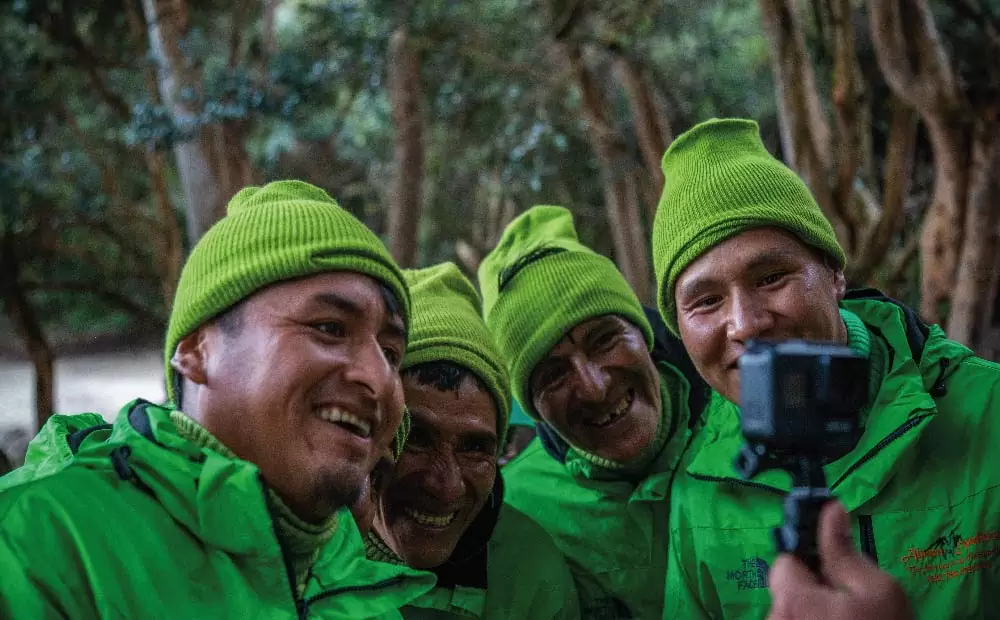
AE súper porters
Our Porters represent the Peruvian people, both men, and women who are at the heart of our...
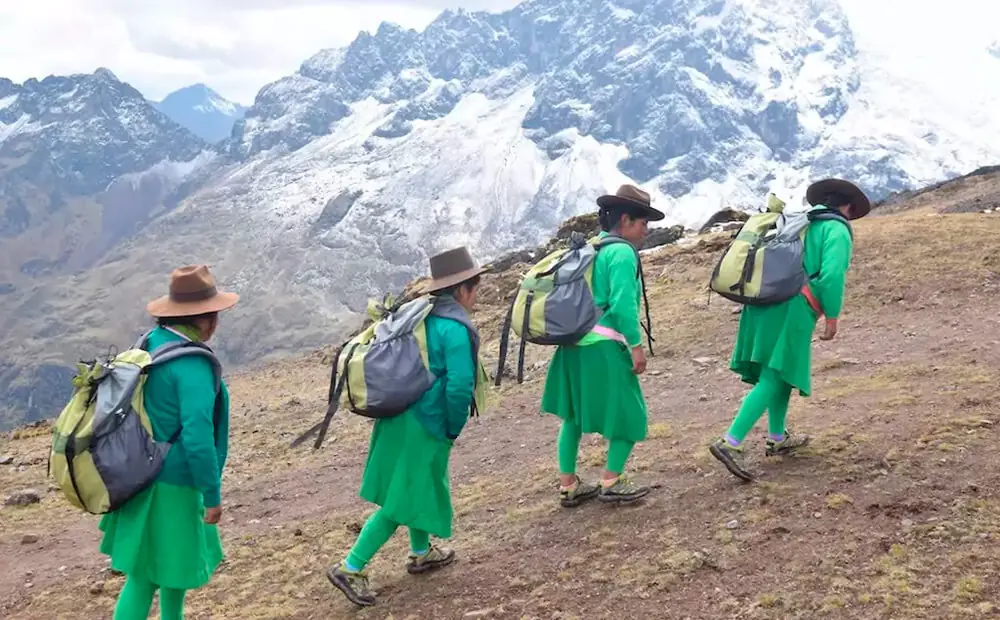
Equality Matters
Alpaca Expeditions aims to promote gender equality and empower women, hiring first Peru Wo...
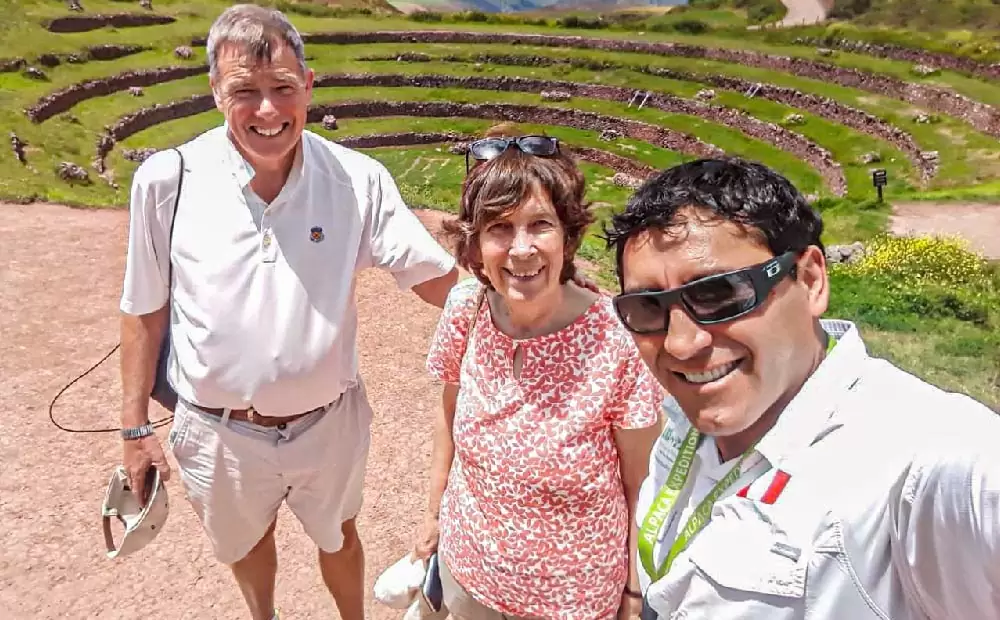
Our Guides
Travelling and trekking along the mountains is one of the best activities in the World. Co...
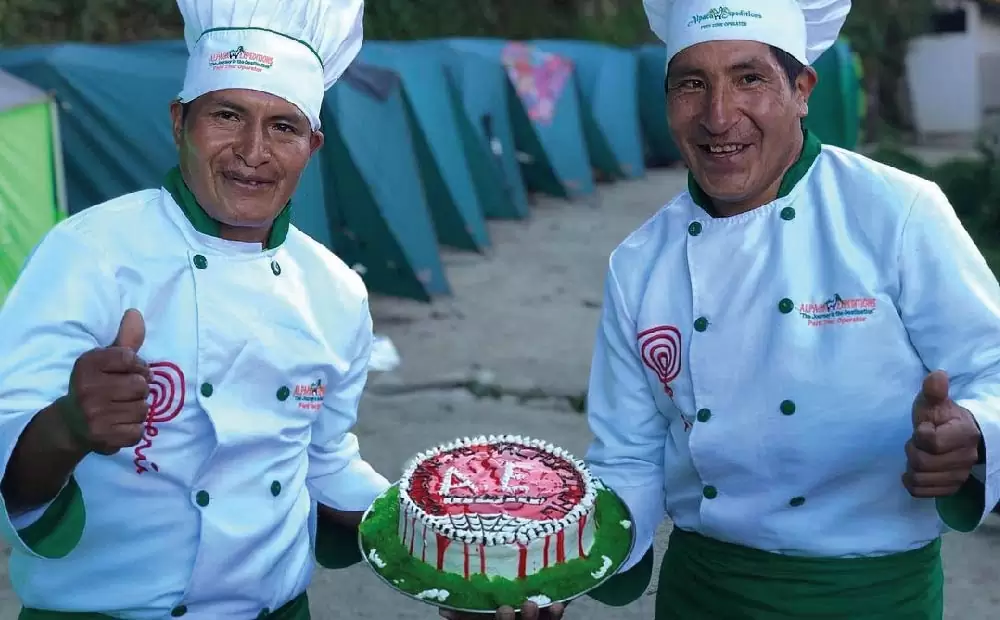
Our Chefs
Trekking along the mountain on your way to conquer Machu Picchu is a once in a lifetime ex...
What do we do for our porters?
Alpaca Expeditions would not be where we are today without these hardworking men and women. We could not imagine a harder job and our team does it smiling. We do our best to thank them for their hard work and loyalty by doing as much as we can to make their lives and their families lives better. All our porters receive all their equipment for free from warm winter hats to proper hiking boots. They sleep in proper tents and are given warm sleeping bags for night. They enjoy the same food we serve our clients and all leftovers are donated to their families. We visit their villages with doctors and dentists, donate school supplies and sports equipment. And our favorite time of the year is when we bring a group of porters and their families to Machu Picchu to visit the ruins for the first time.

AE súper porters
Our Porters represent the Peruvian people, both men, and women who are at the heart of our company. It is not possible to ...

Equality Matters
Alpaca Expeditions aims to promote gender equality and empower women, hiring first Peru Women as Porters opening the door ...
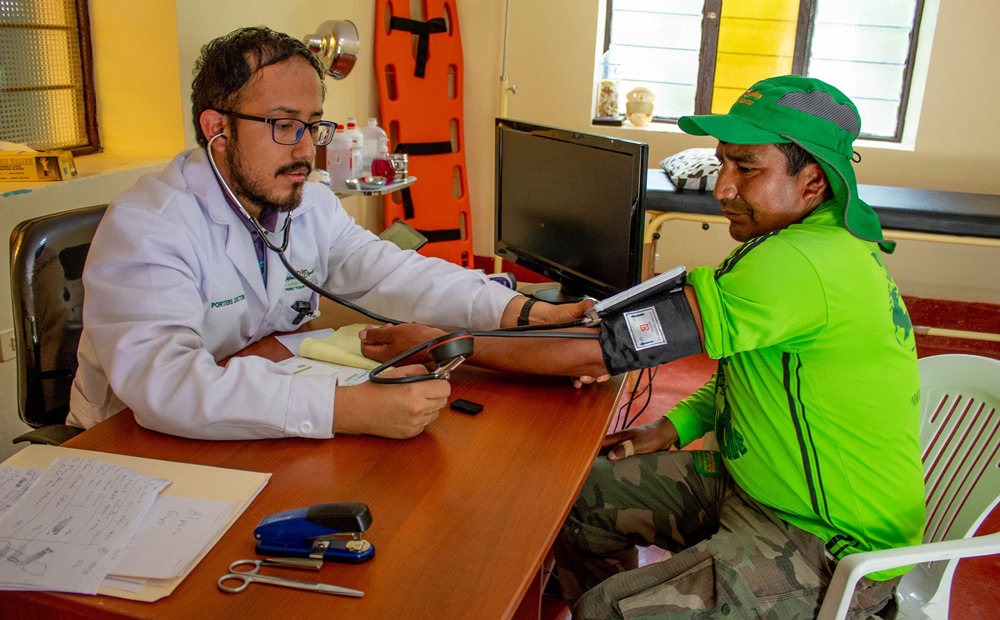
Free Medical Assistance to Porters
In 2019, we hired our first Alpaca Expeditions Medical Doctor to help tend to our guides, drivers, chefs…
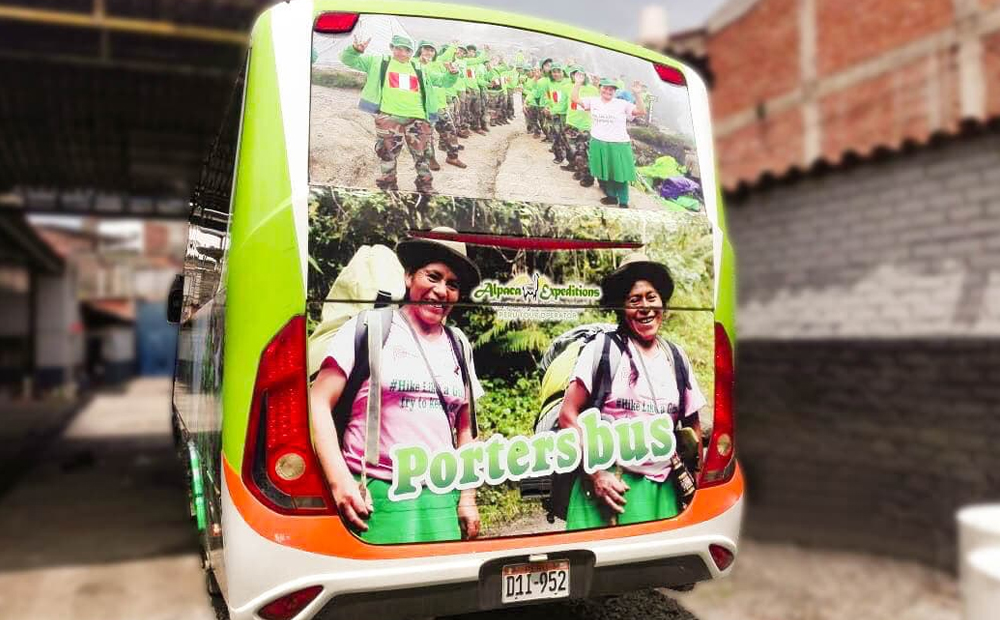
Our Porter’s bus
We treat our porters with the same dignity and respect as we do our clients. Just as our clients enjoy our…
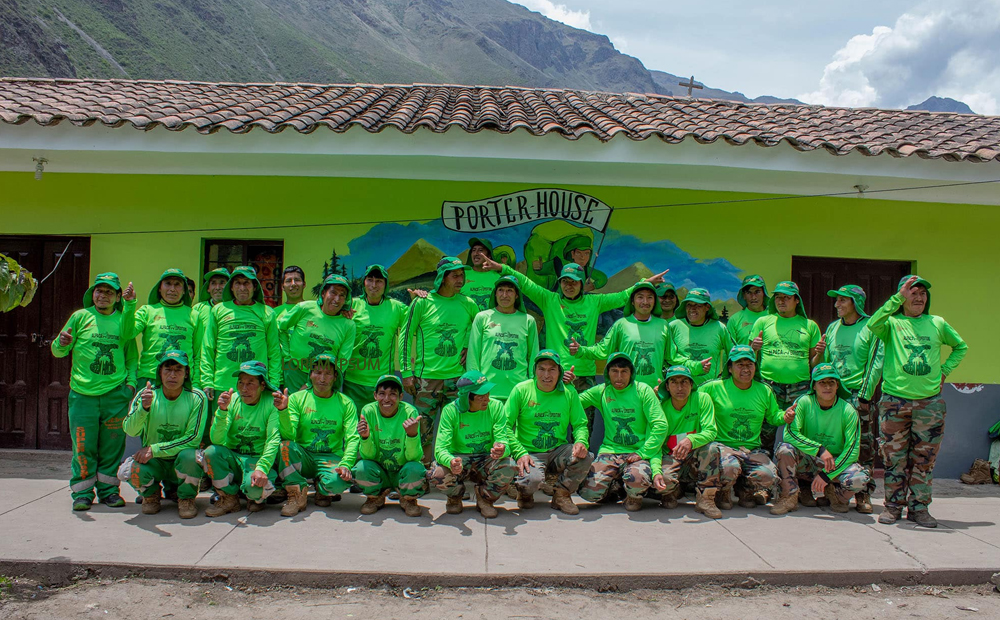
Our Porter’s House
As we mentioned above, our Porters like many Peruvian people come from distant villages to work our treks…
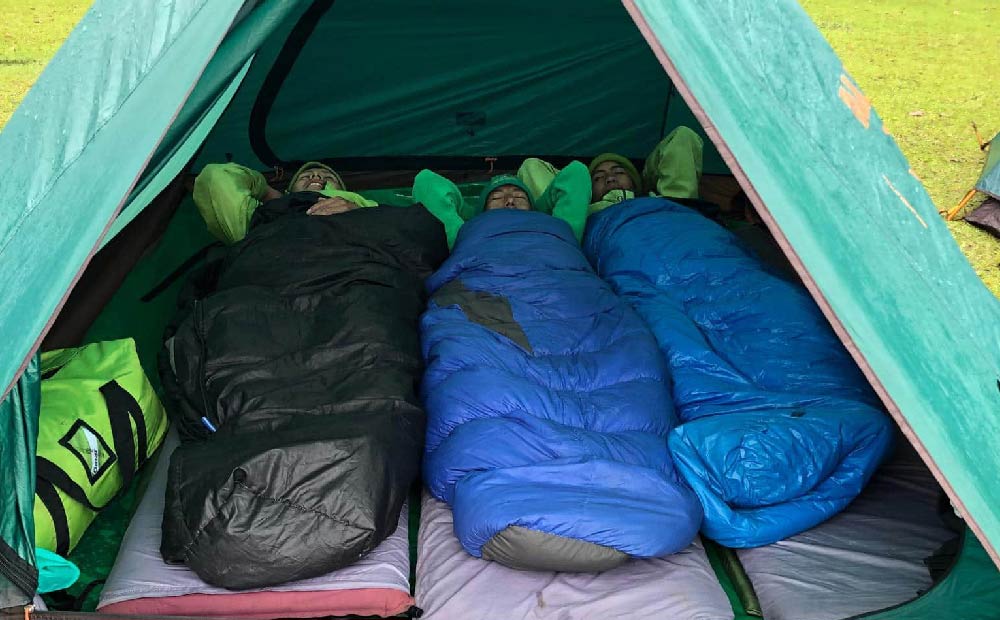
Tents and Sleeping bags
Again, this is something unique that Alpaca Expeditions provides, and sad others are not doing. We supply…
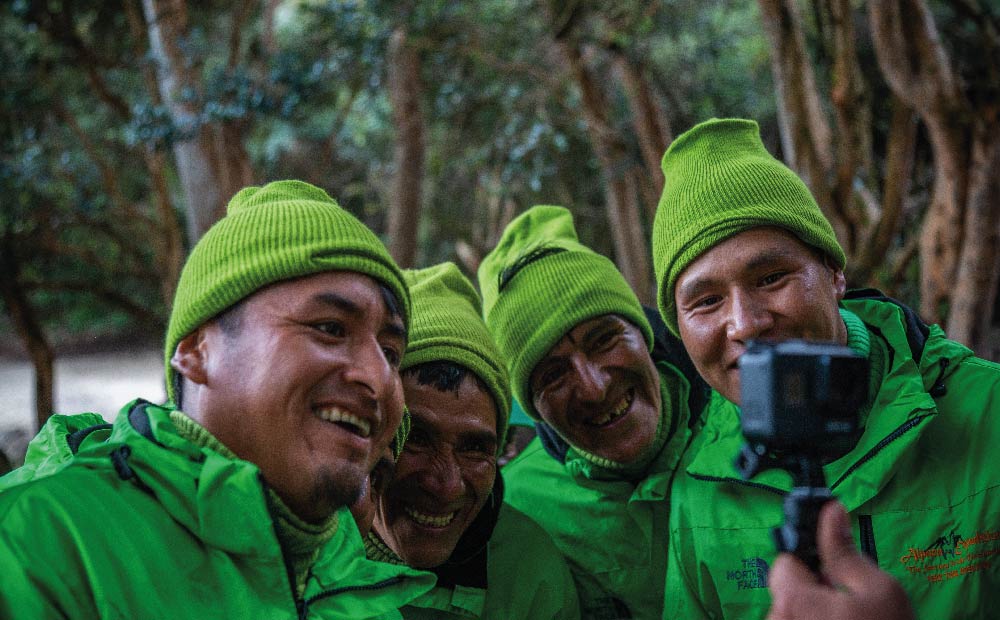
Proper Equipment for our Porters
Every porter of ours receives proper equipment. That includes moisture-wicking long/short sleeve shirts…
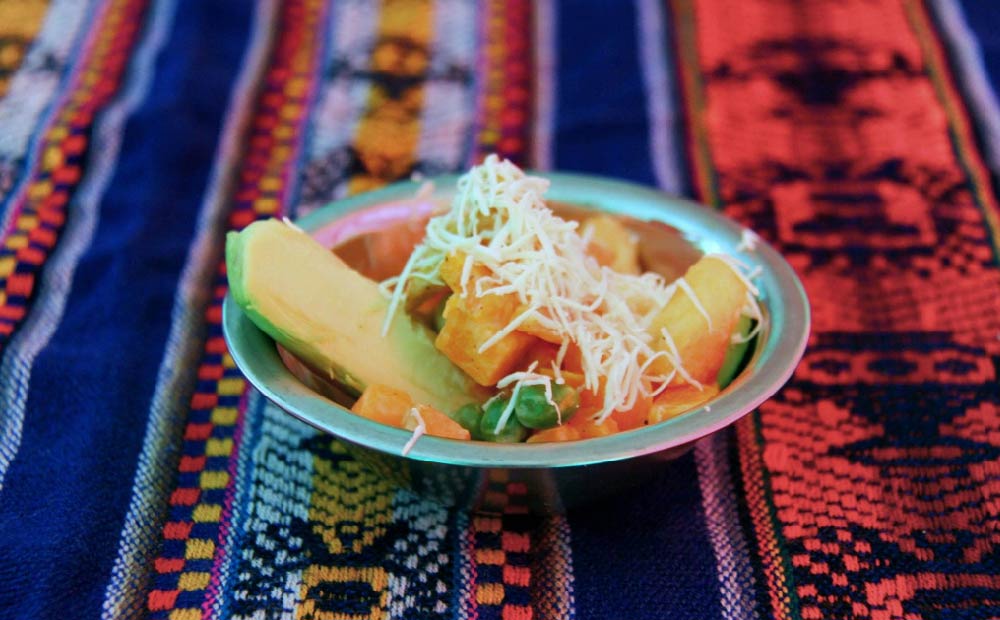
Nutritious Meals for our Porters
A general comment from trekkers on an Alpaca Expeditions tour is that we serve too much food. Well…
Videos of our Porters
Extra information
Alpaca Expeditions is always ready to make your trip safe and as easy as possible for you. Because these trips are a bit more complicated than your typical tour, we have put together some notes on logistics, storage, and even recommendations on where to stay in Cusco. And of course our team is ready to answer any other question, as we promise to be your partner from the moment you first contact us to our last goodbye in Cusco.
Alpaca Expeditions Recognitions
ISO (International Organization for Standardization)
In the pursuit to stand out from the rest, Alpaca Expeditions has obtained four ISOs plus our carbon footprint certificate to date. These achievements result from our efforts to implement the internationally-recognized integrated management system. They also represent our commitment to all of our clients and staff of operating sustainability and responsibility in every way possible.
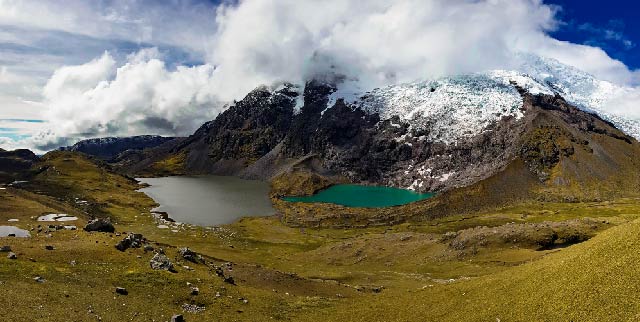

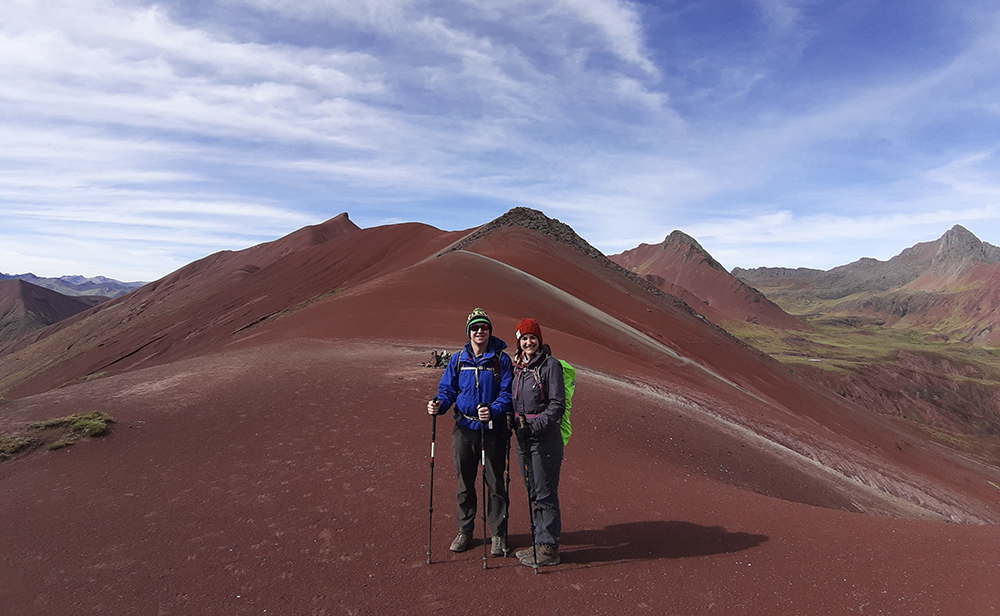
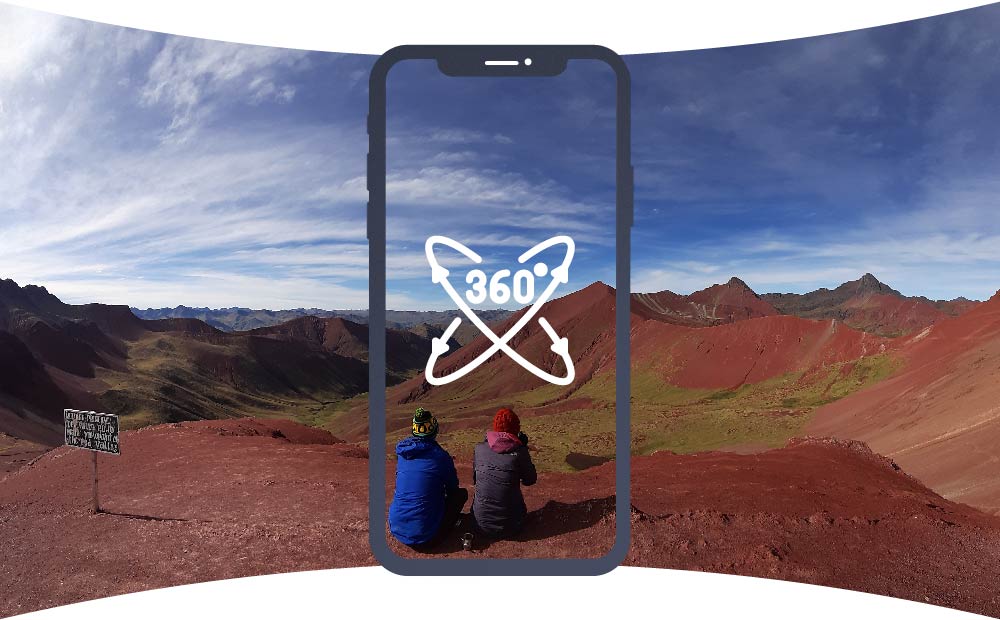
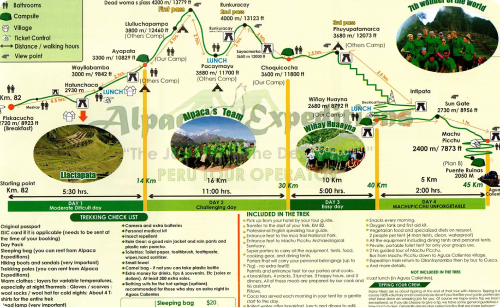
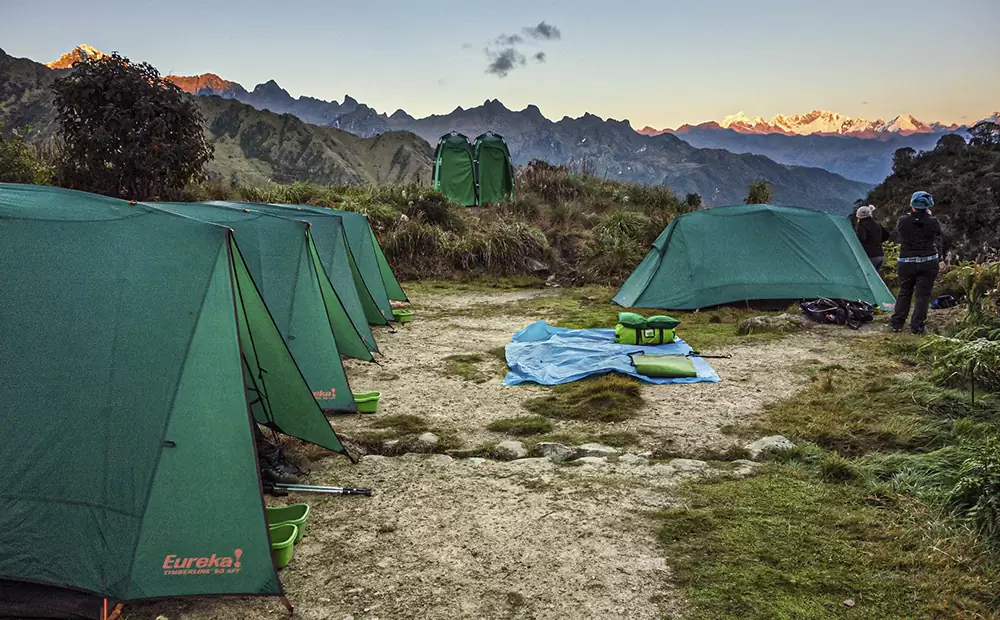
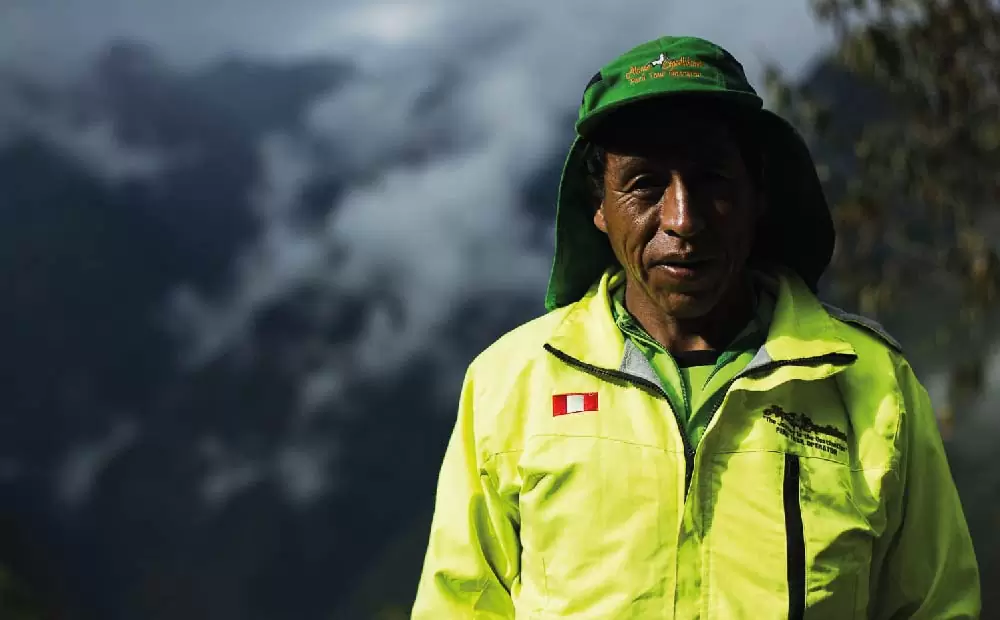
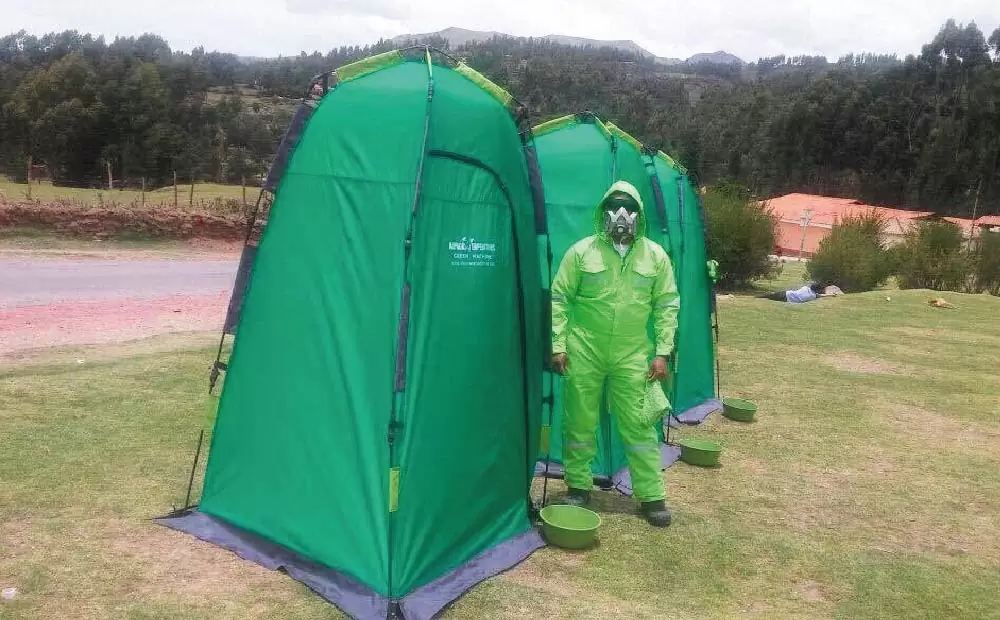
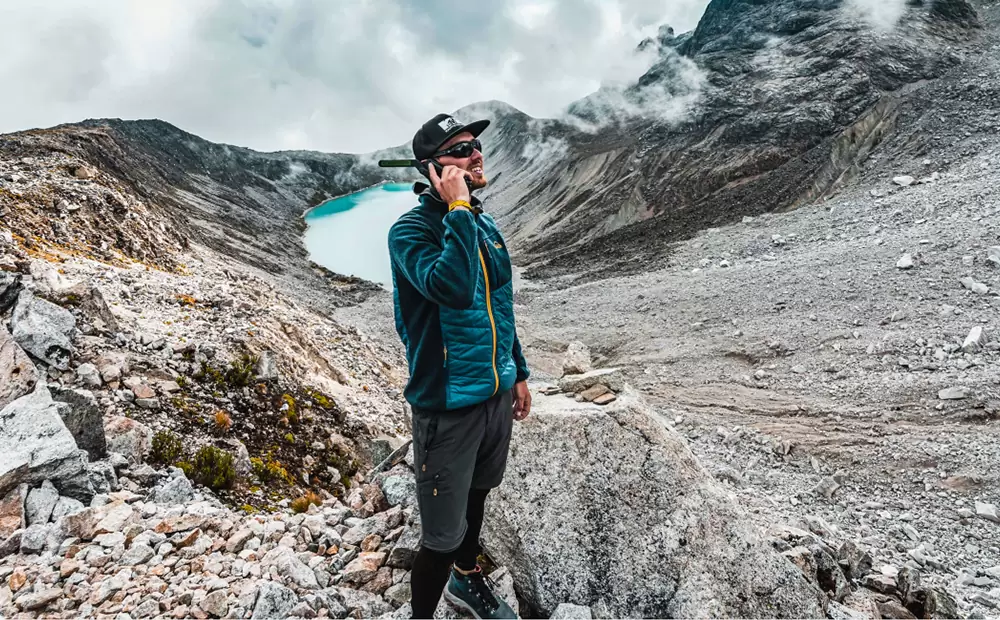
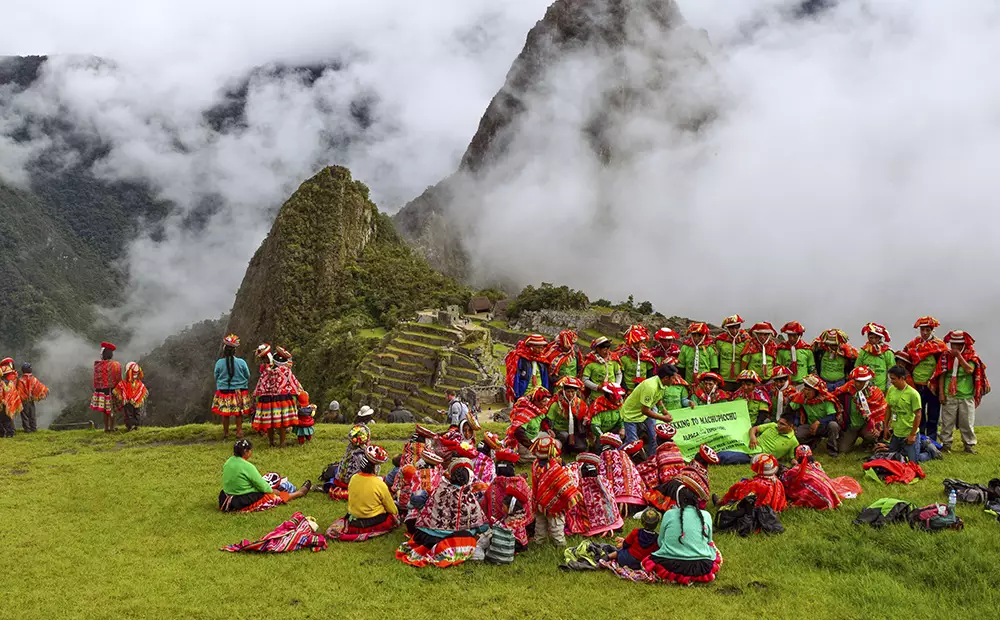
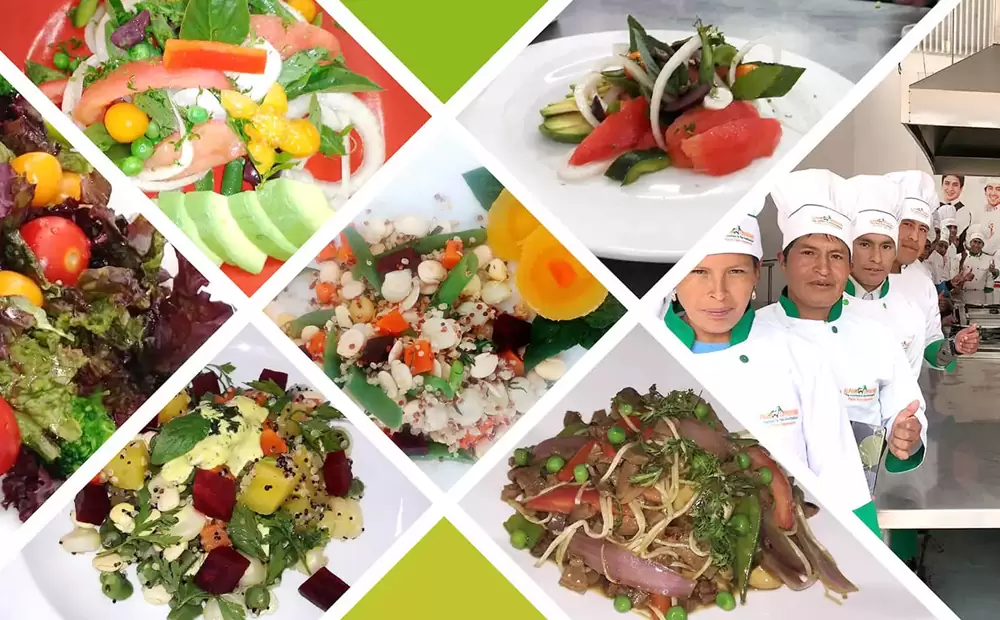
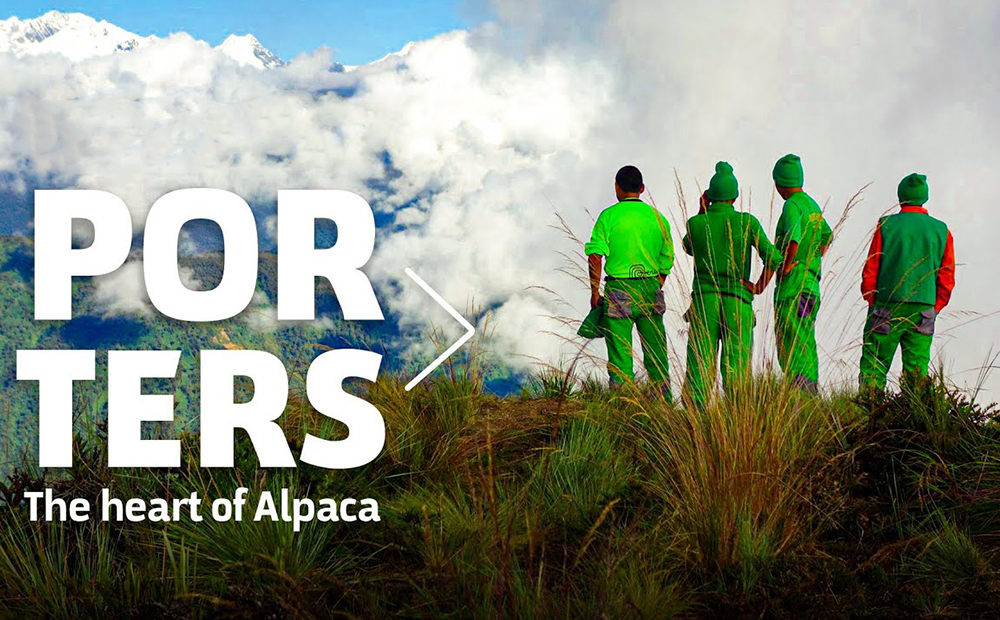
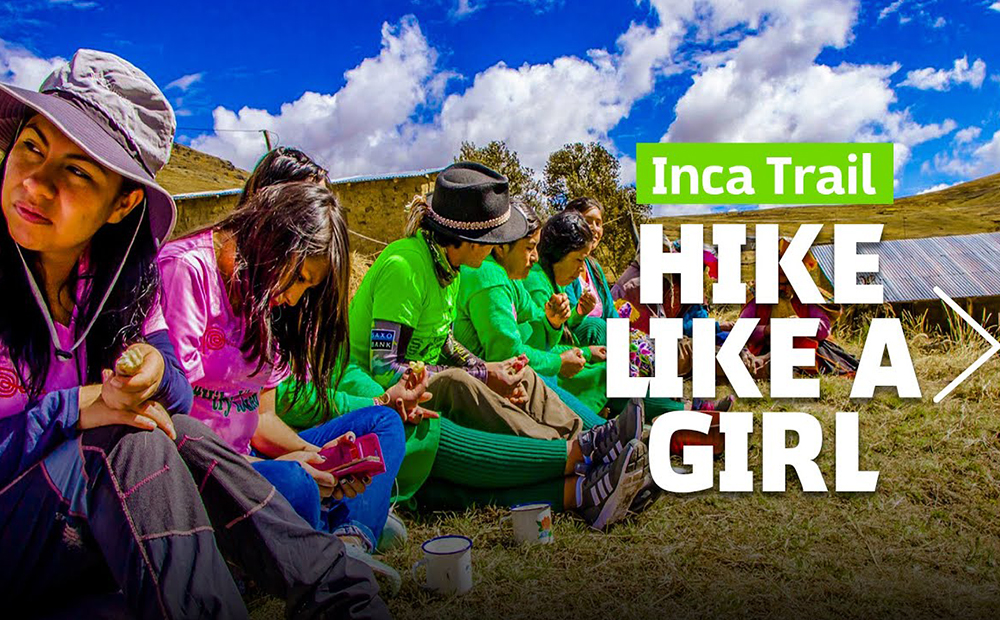
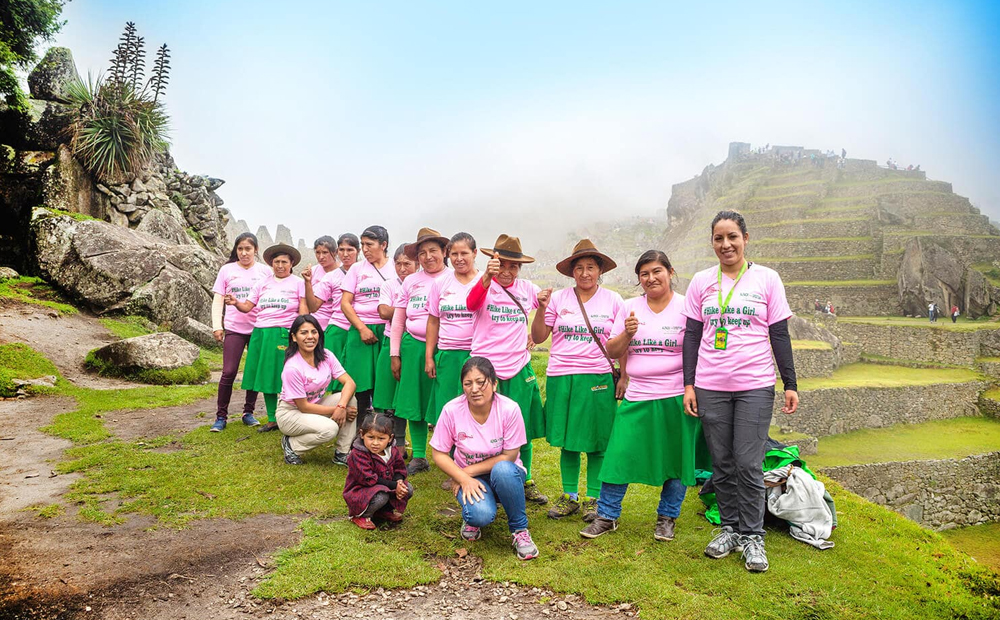
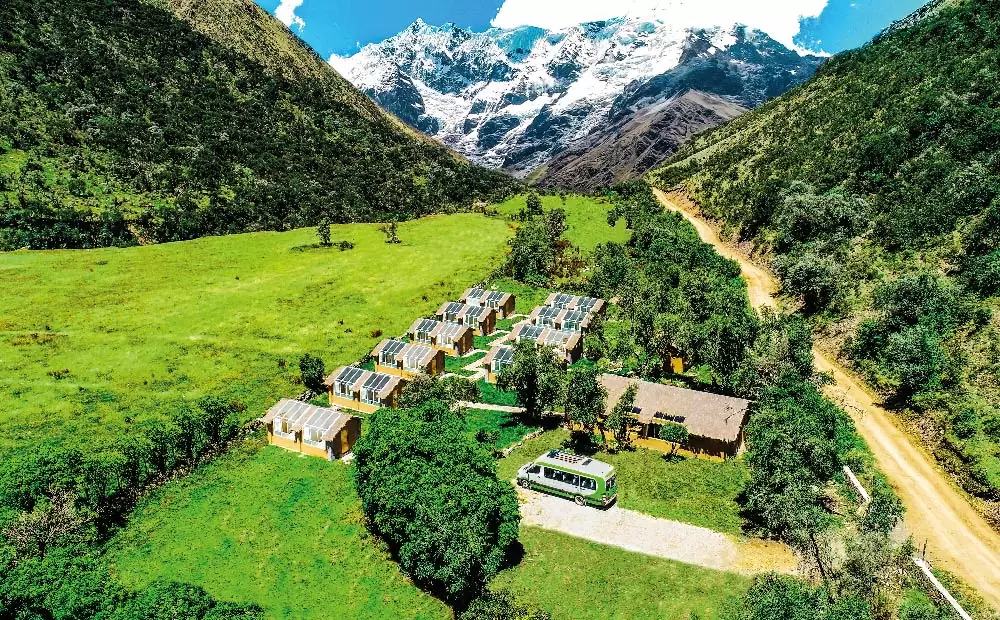
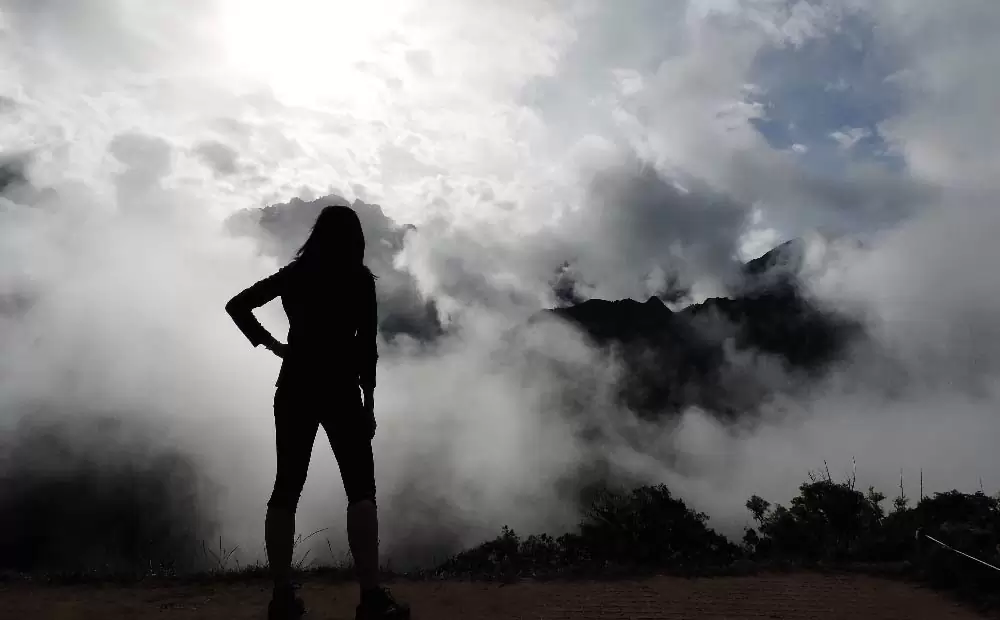
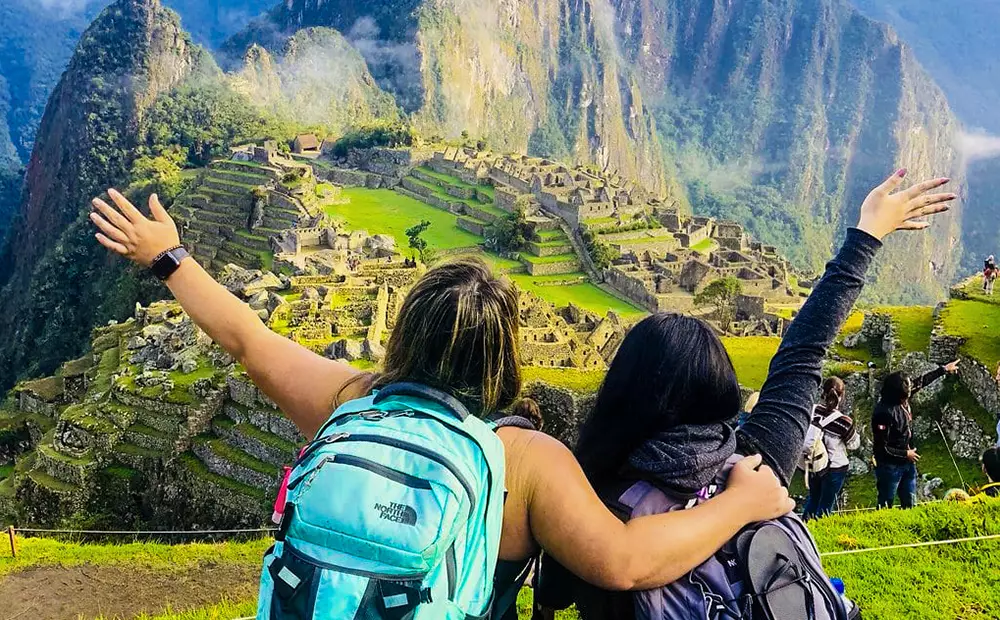
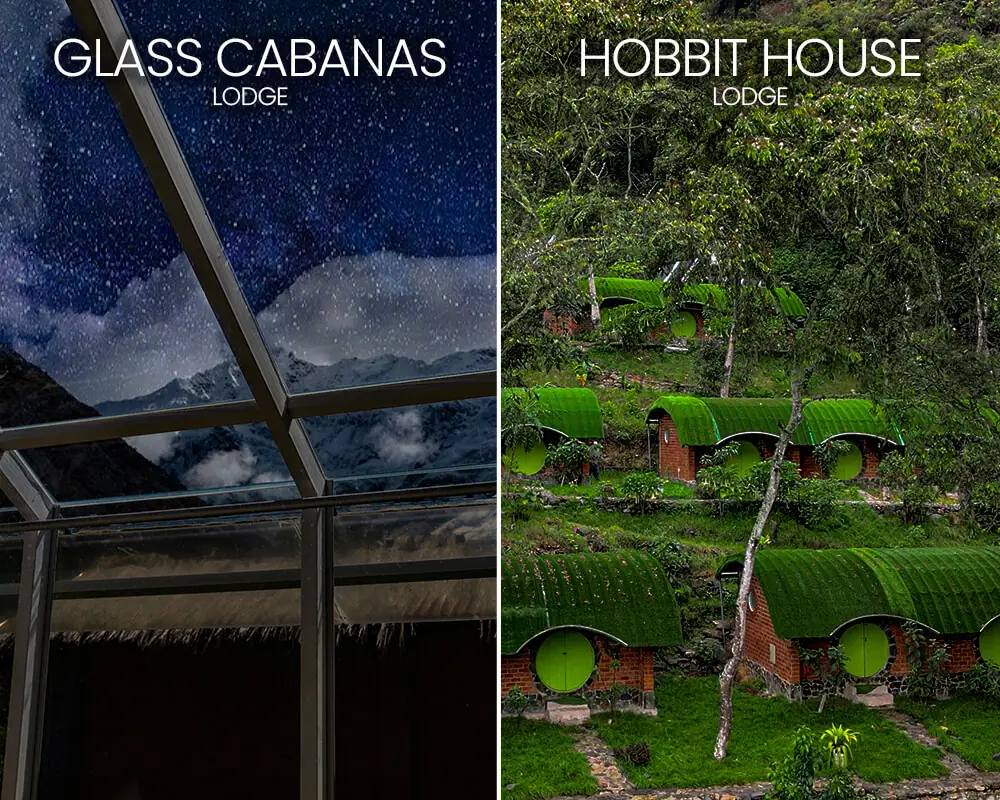
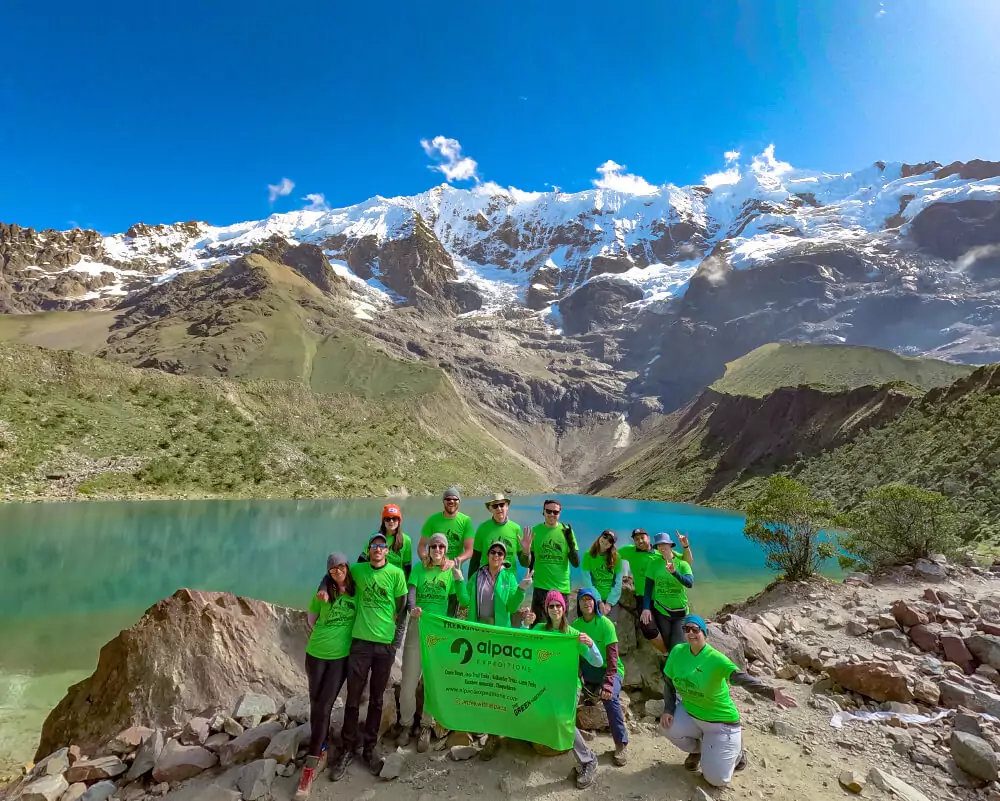
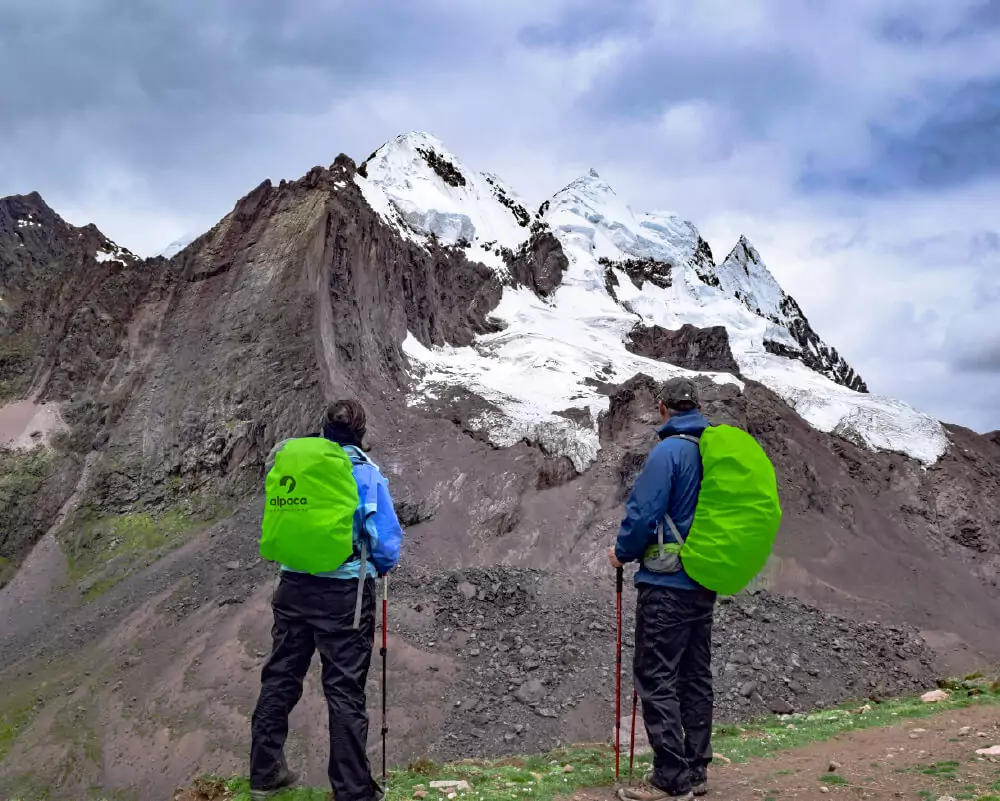
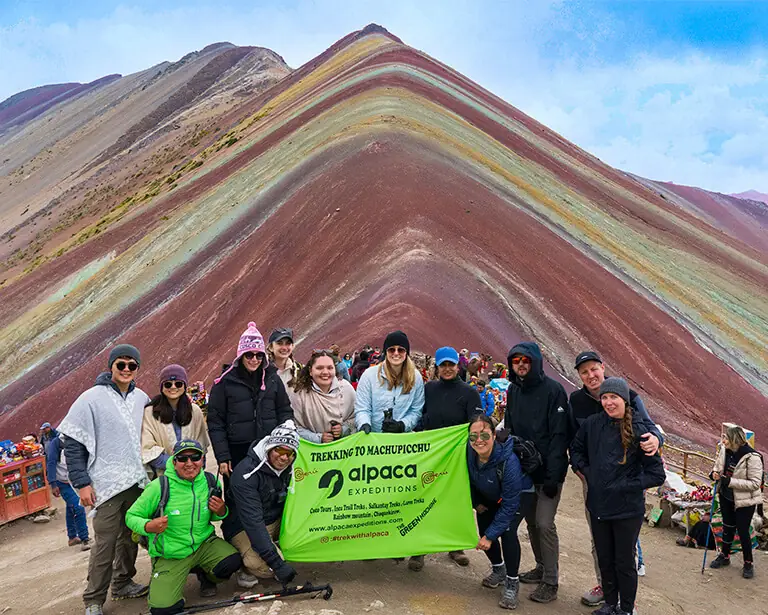
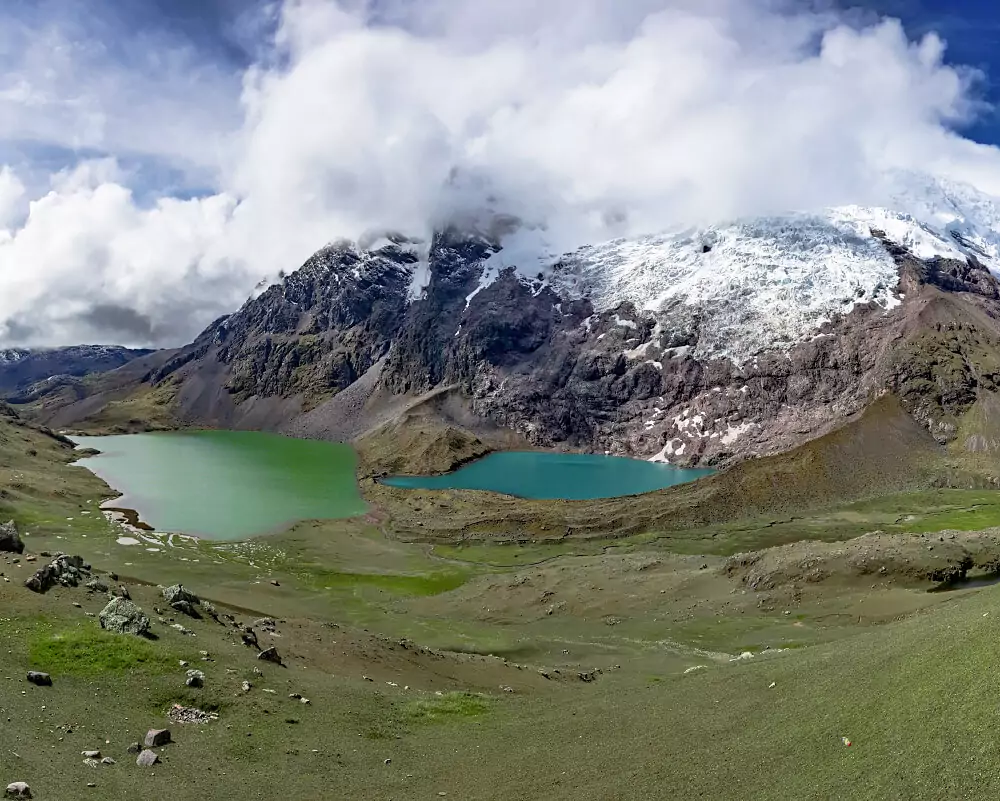
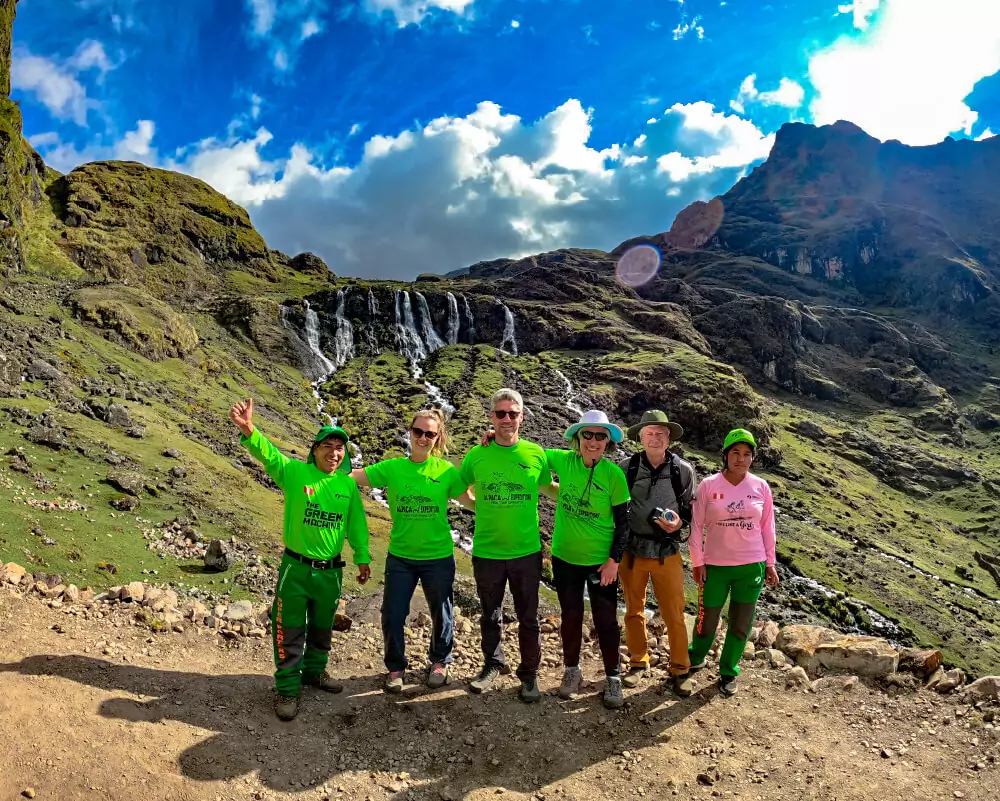
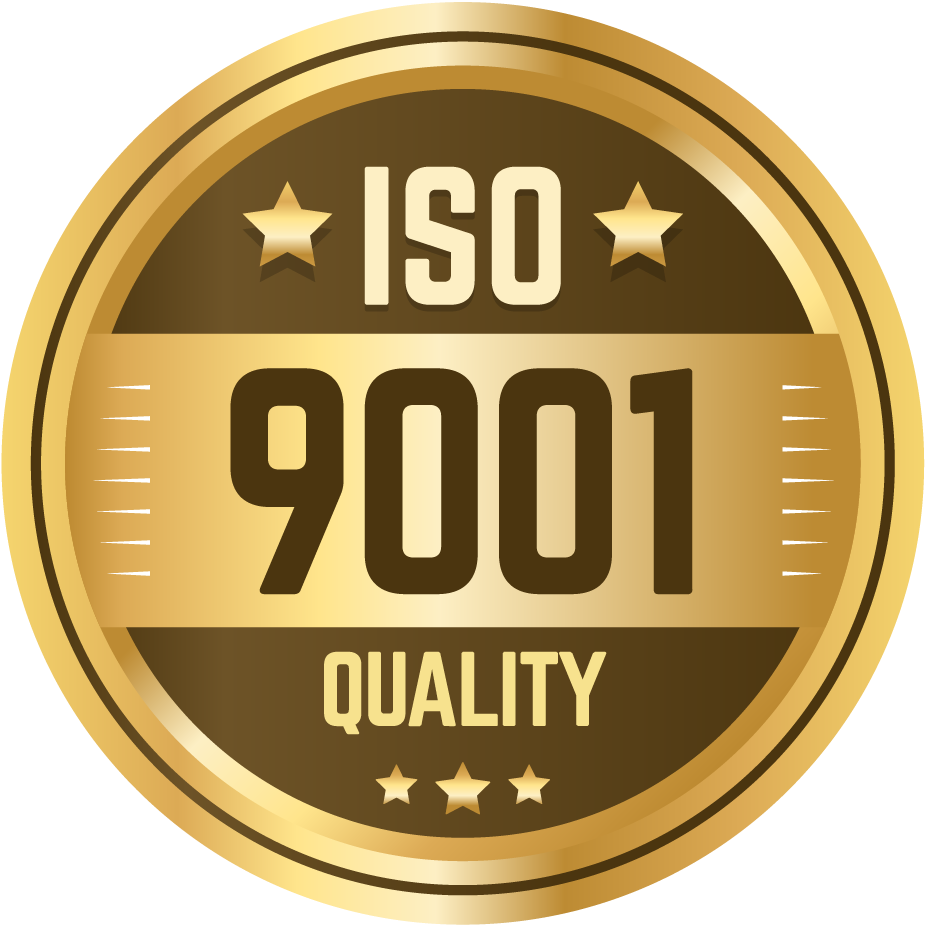

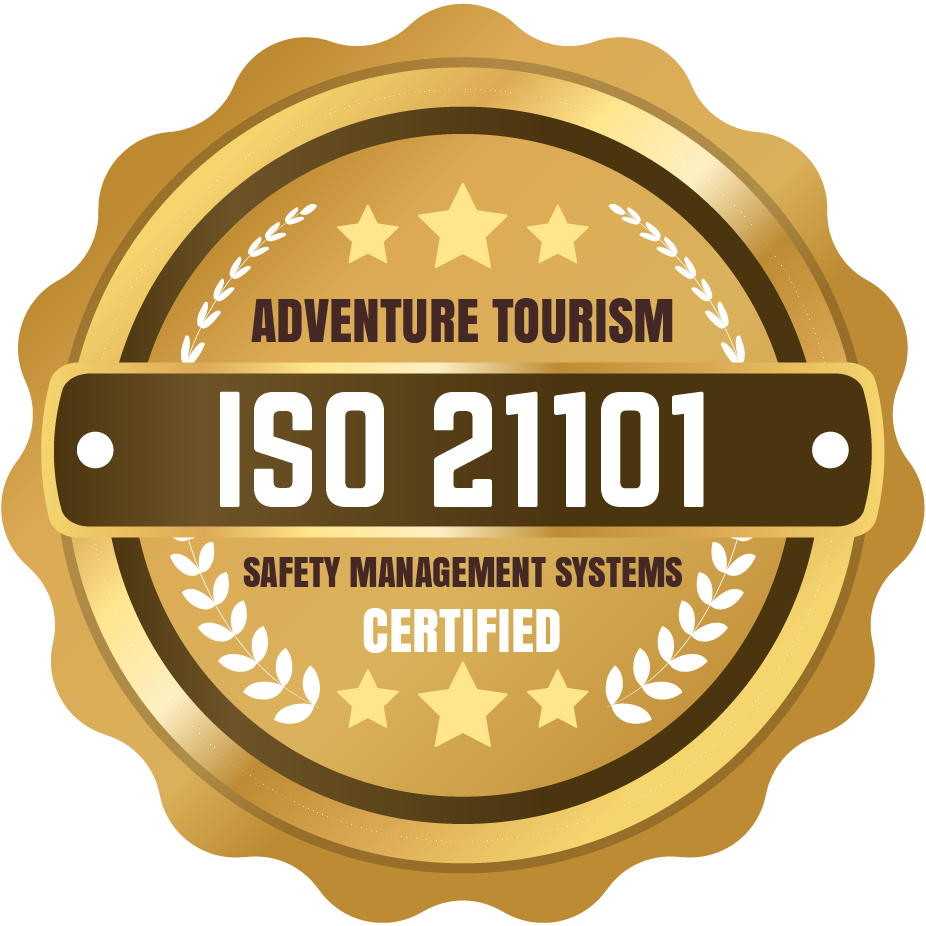
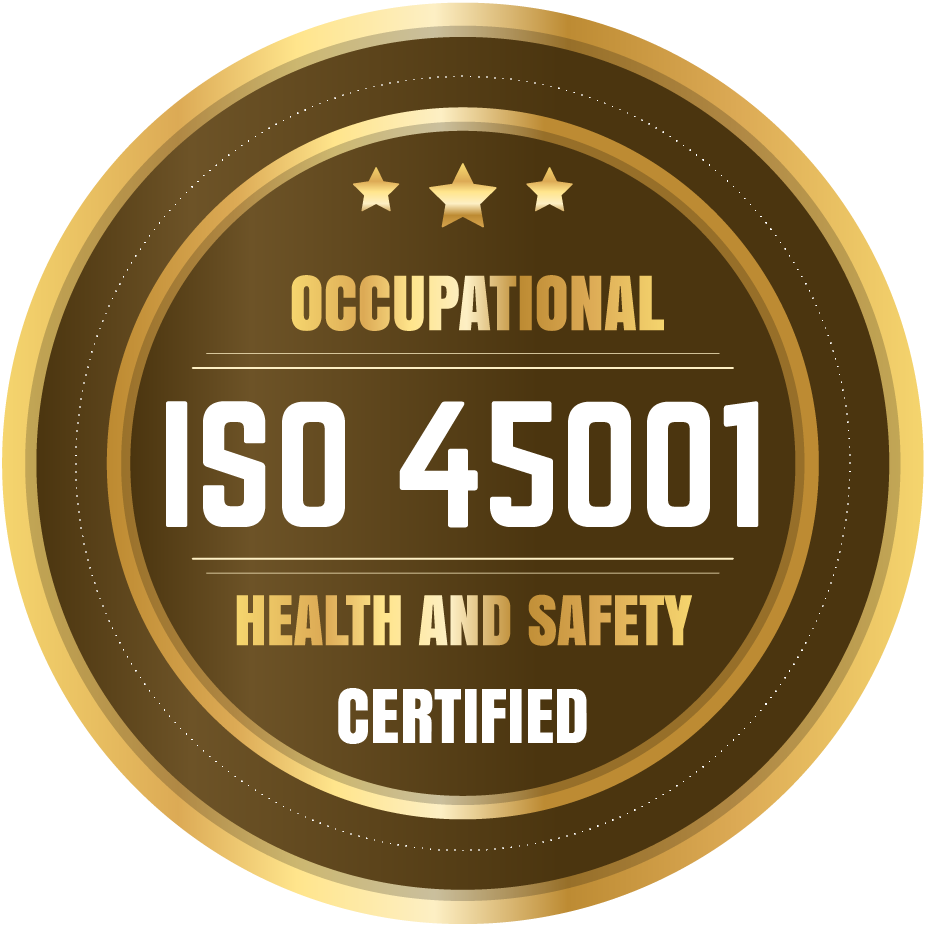
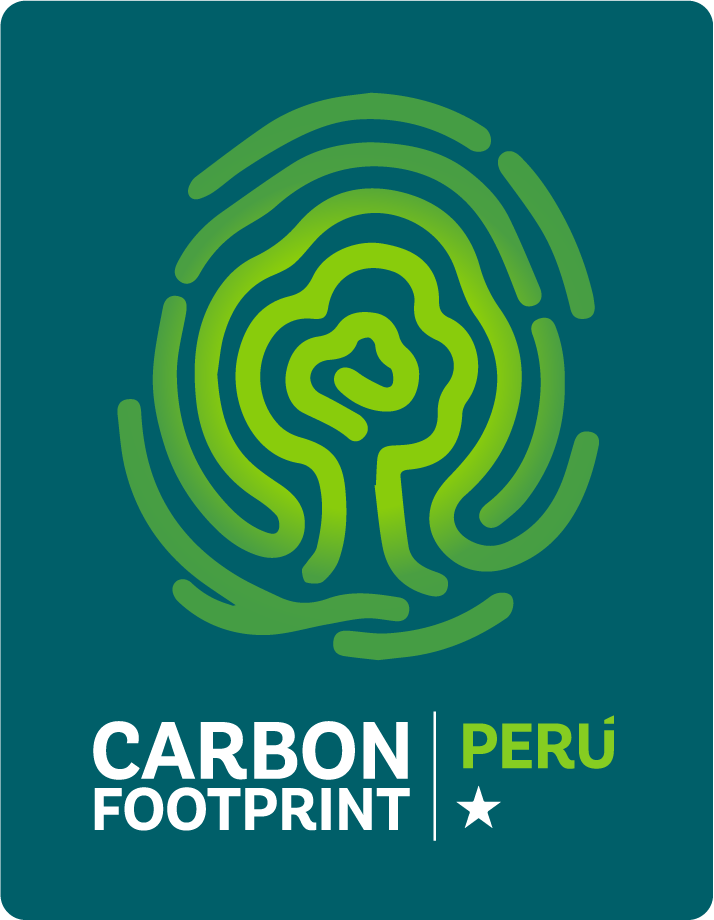
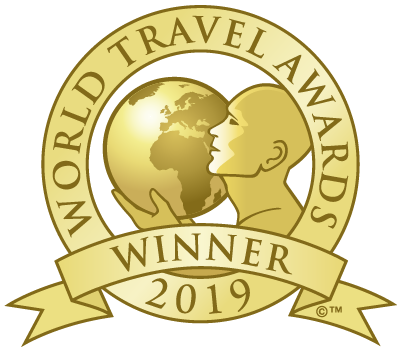
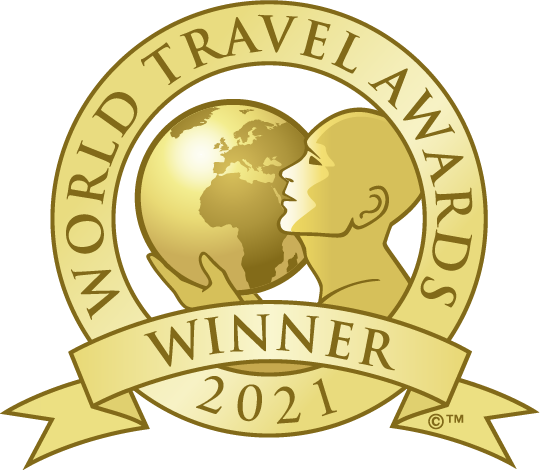











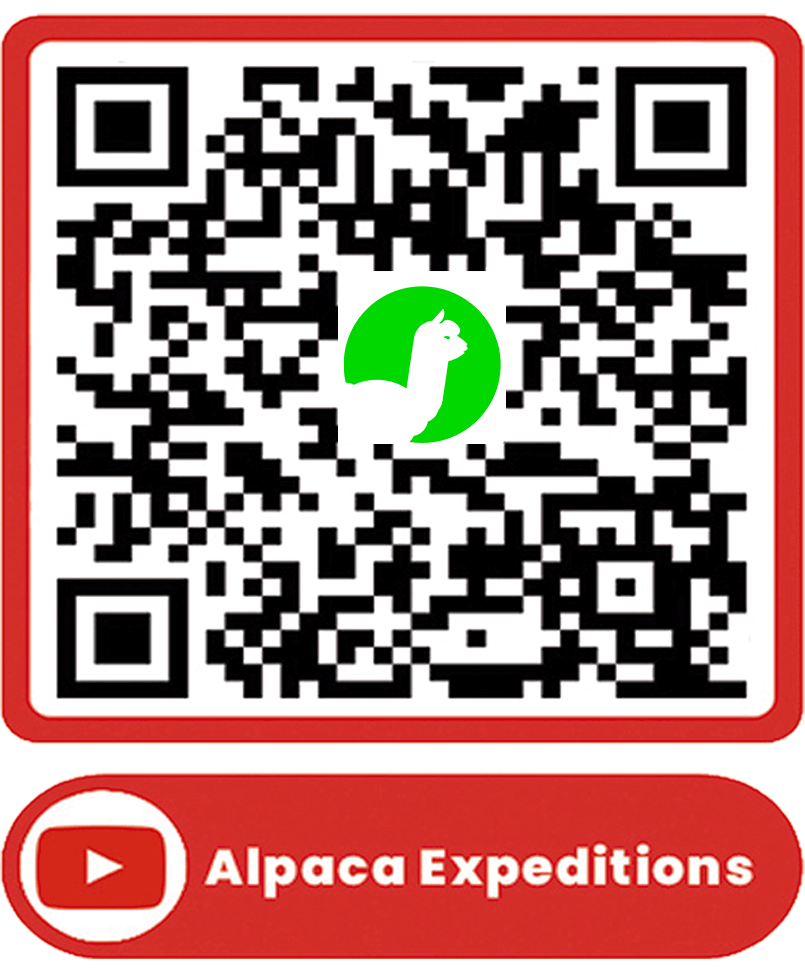

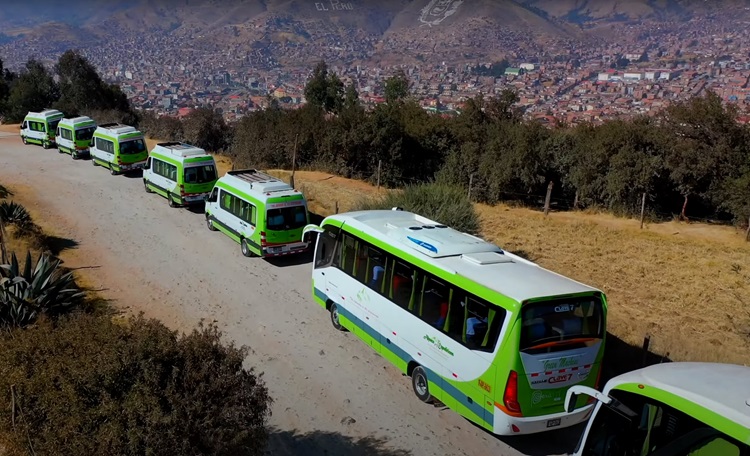
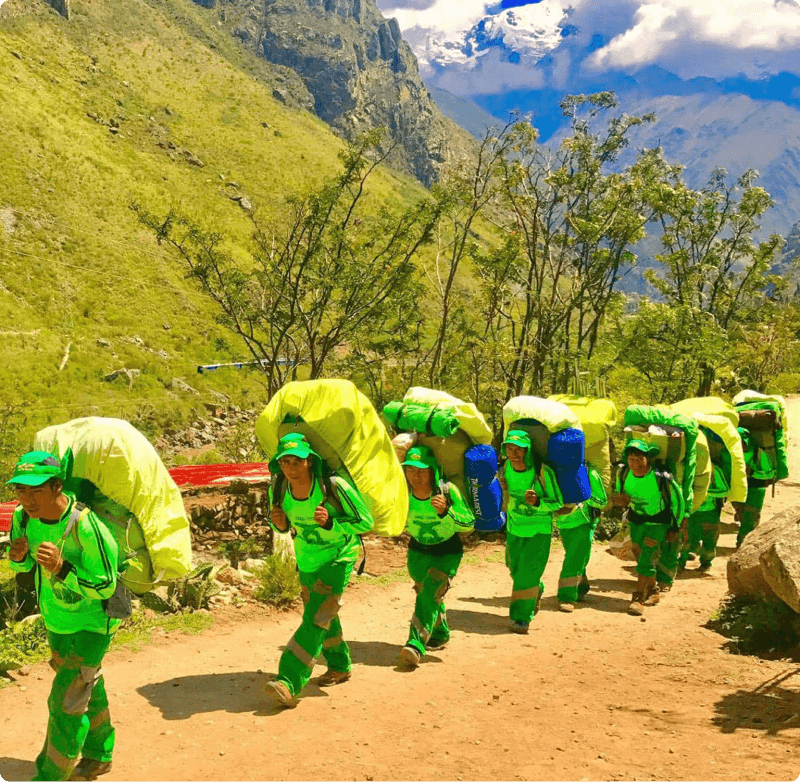 Porters will carry up to 7 kg of your personal items, which must include your sleeping bag and air mat (if you bring or rent one). From us, these two items weigh a combined total of 3.5 kg.
Porters will carry up to 7 kg of your personal items, which must include your sleeping bag and air mat (if you bring or rent one). From us, these two items weigh a combined total of 3.5 kg.